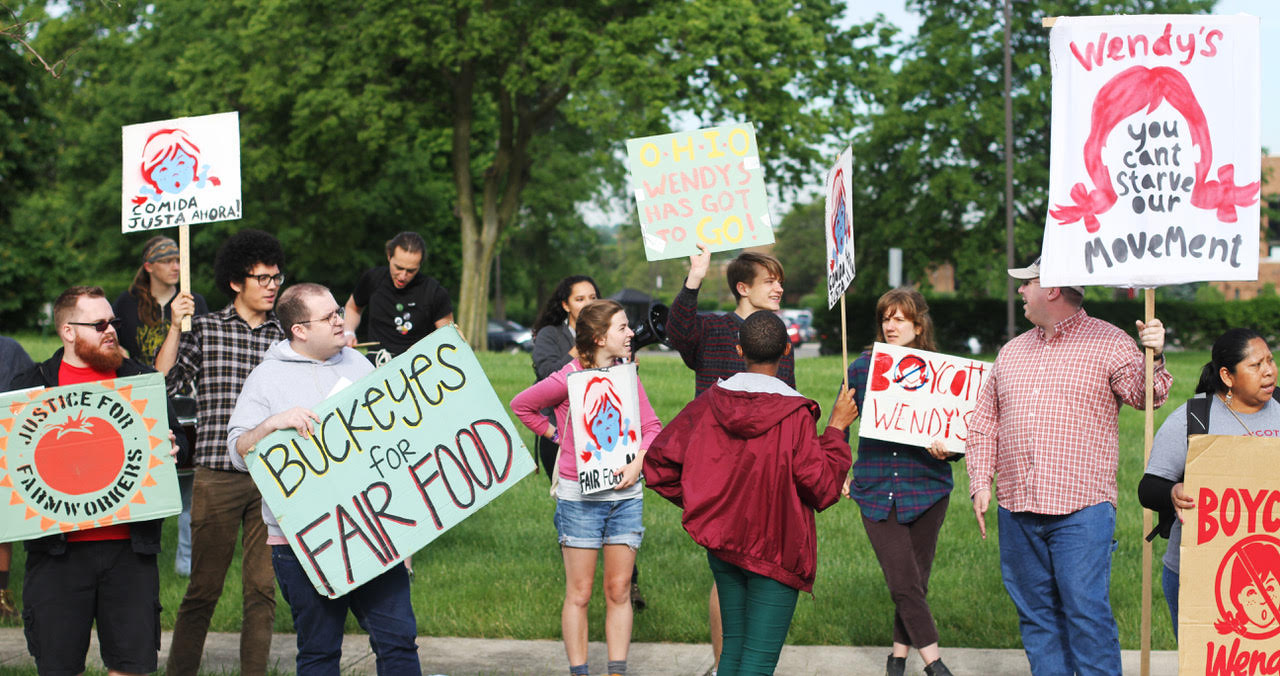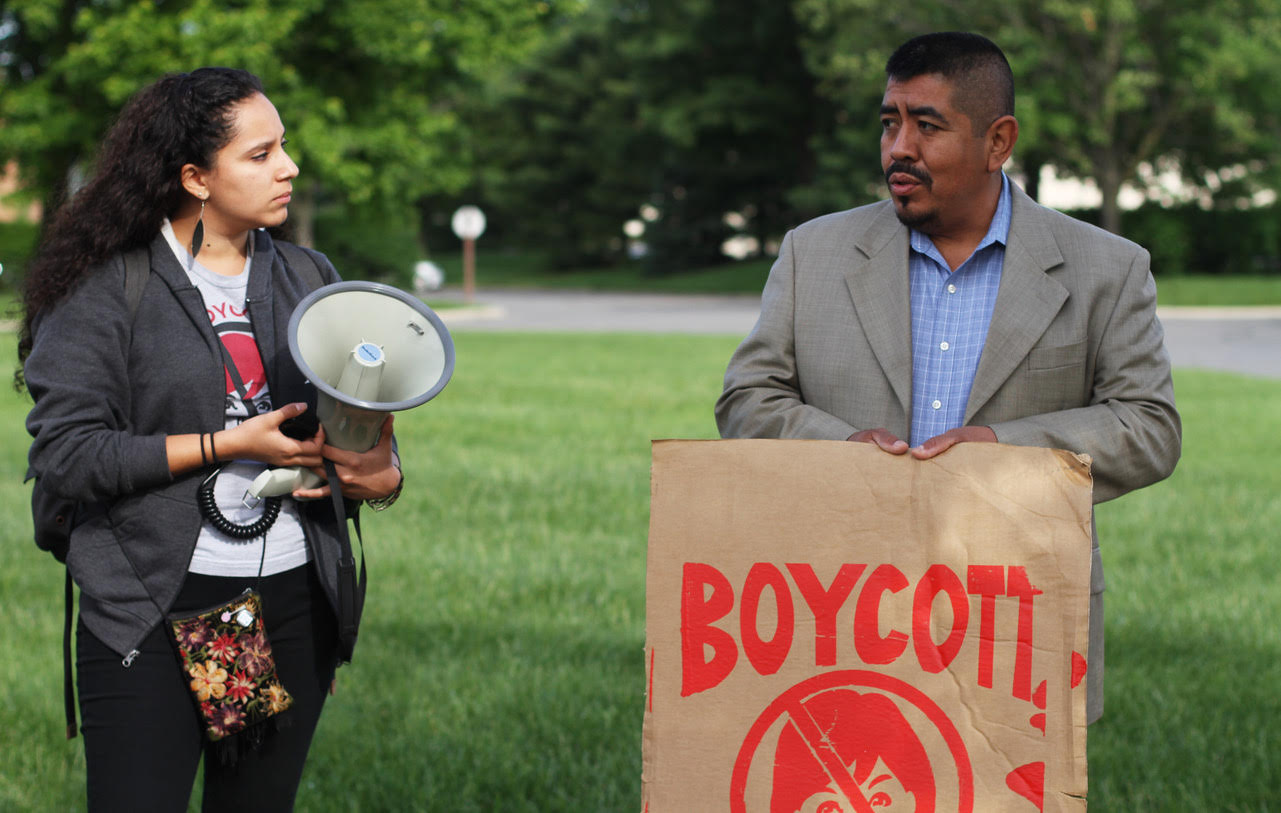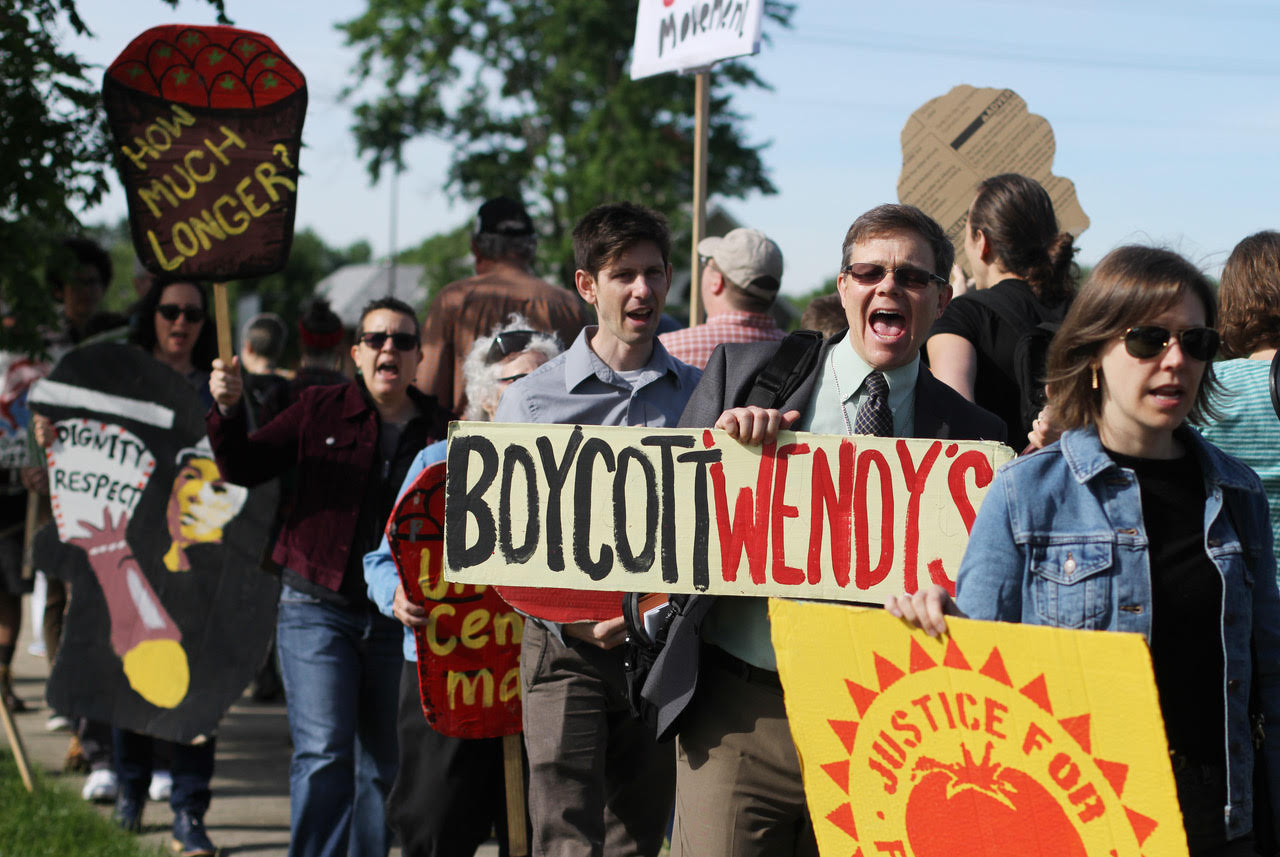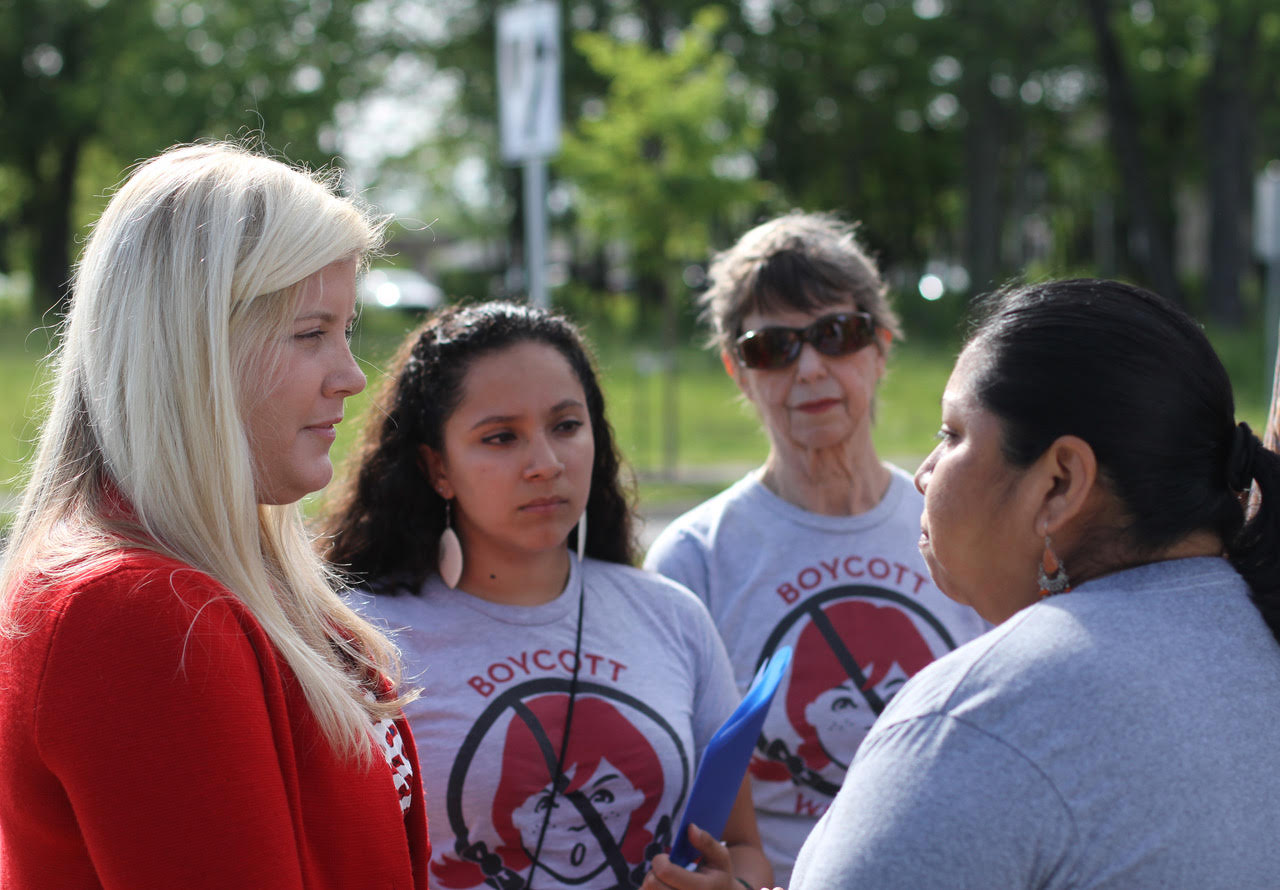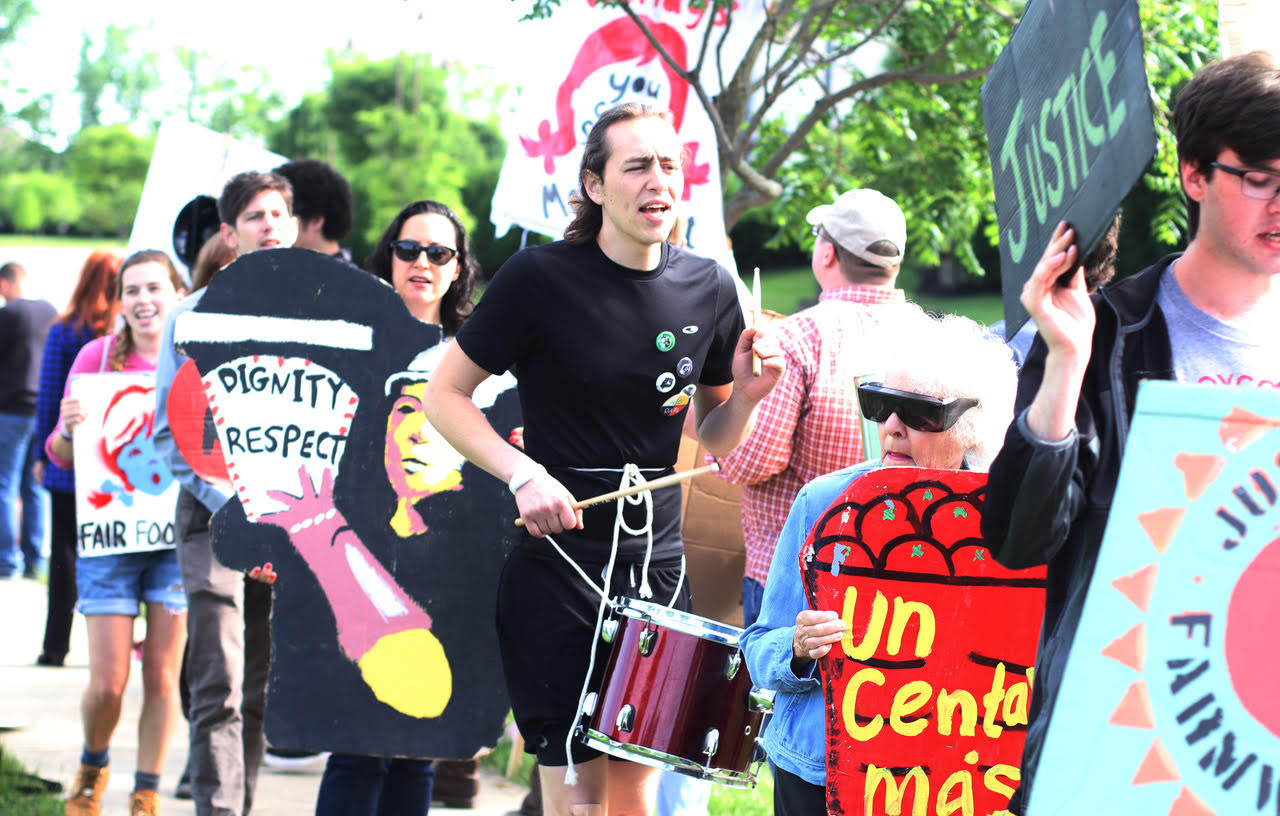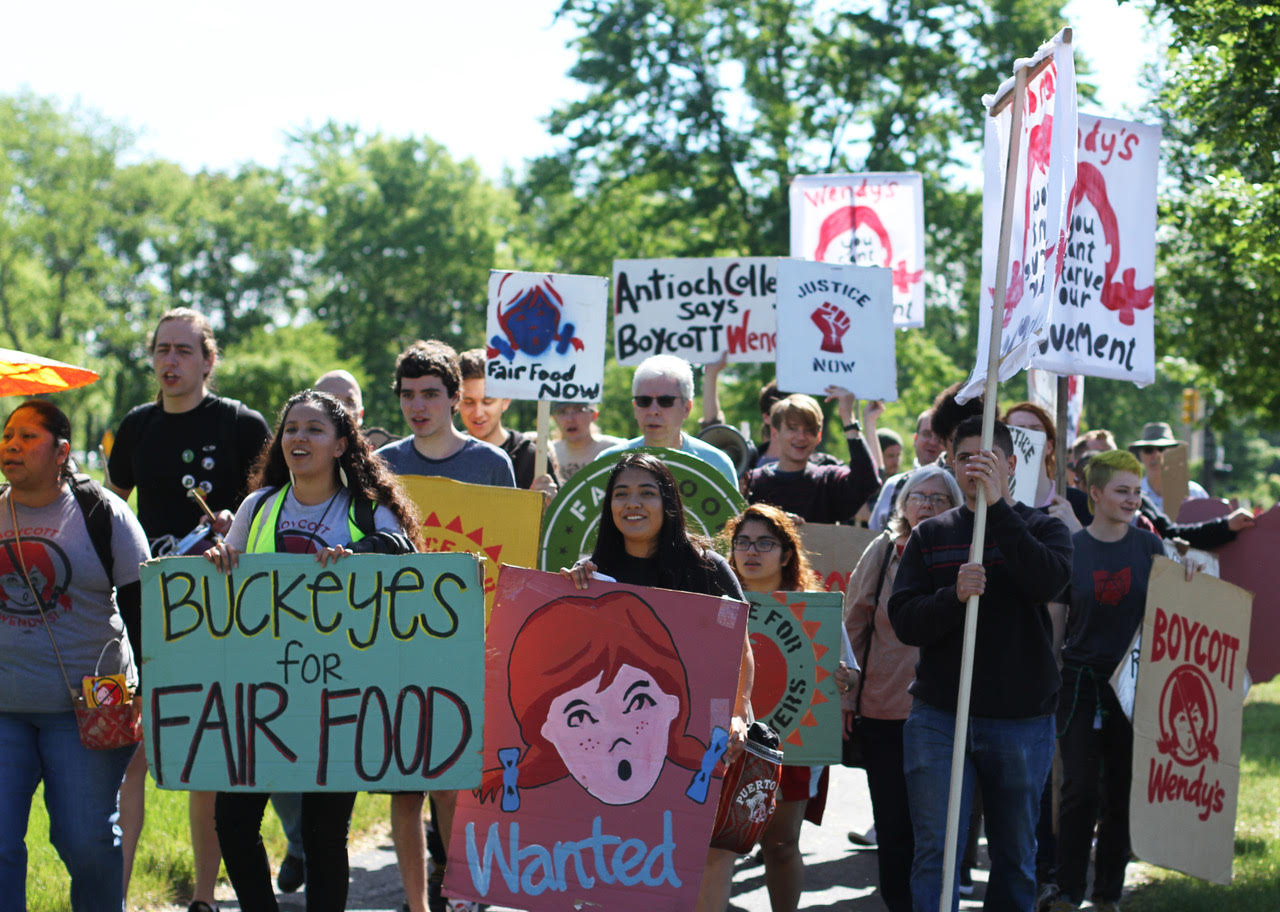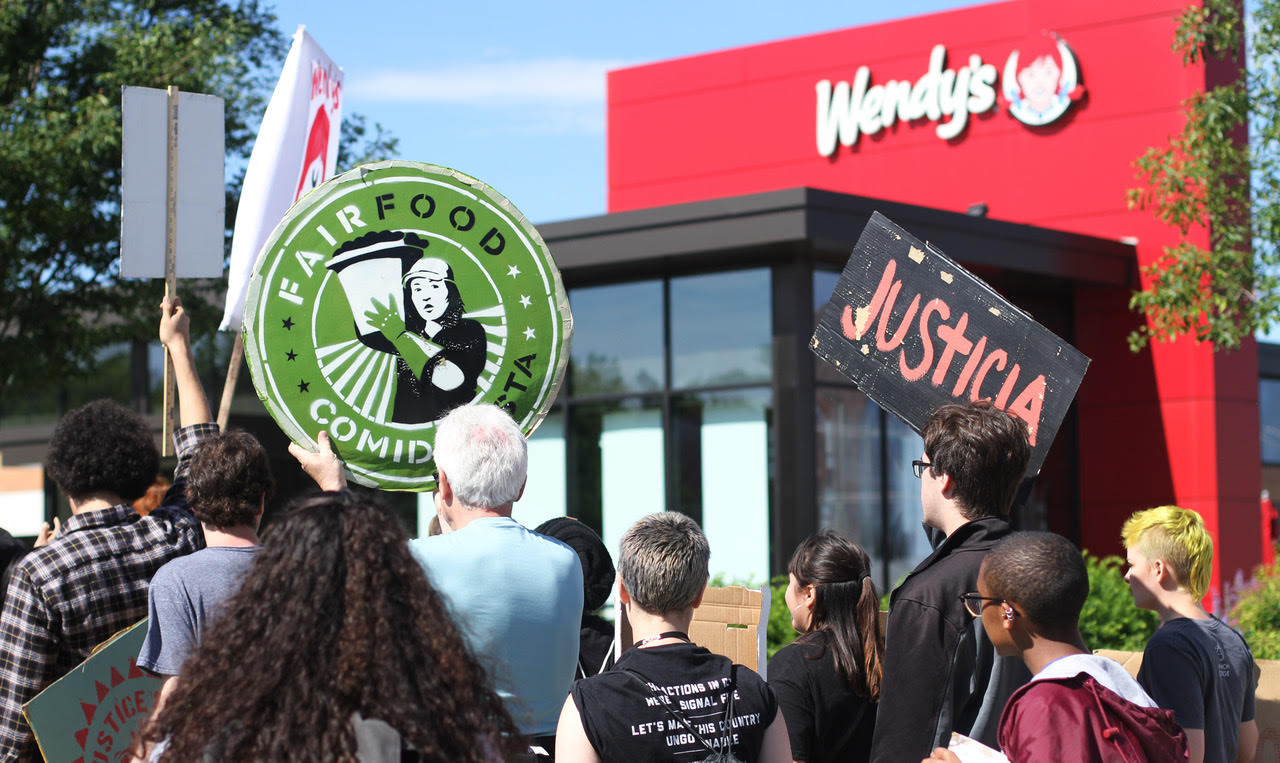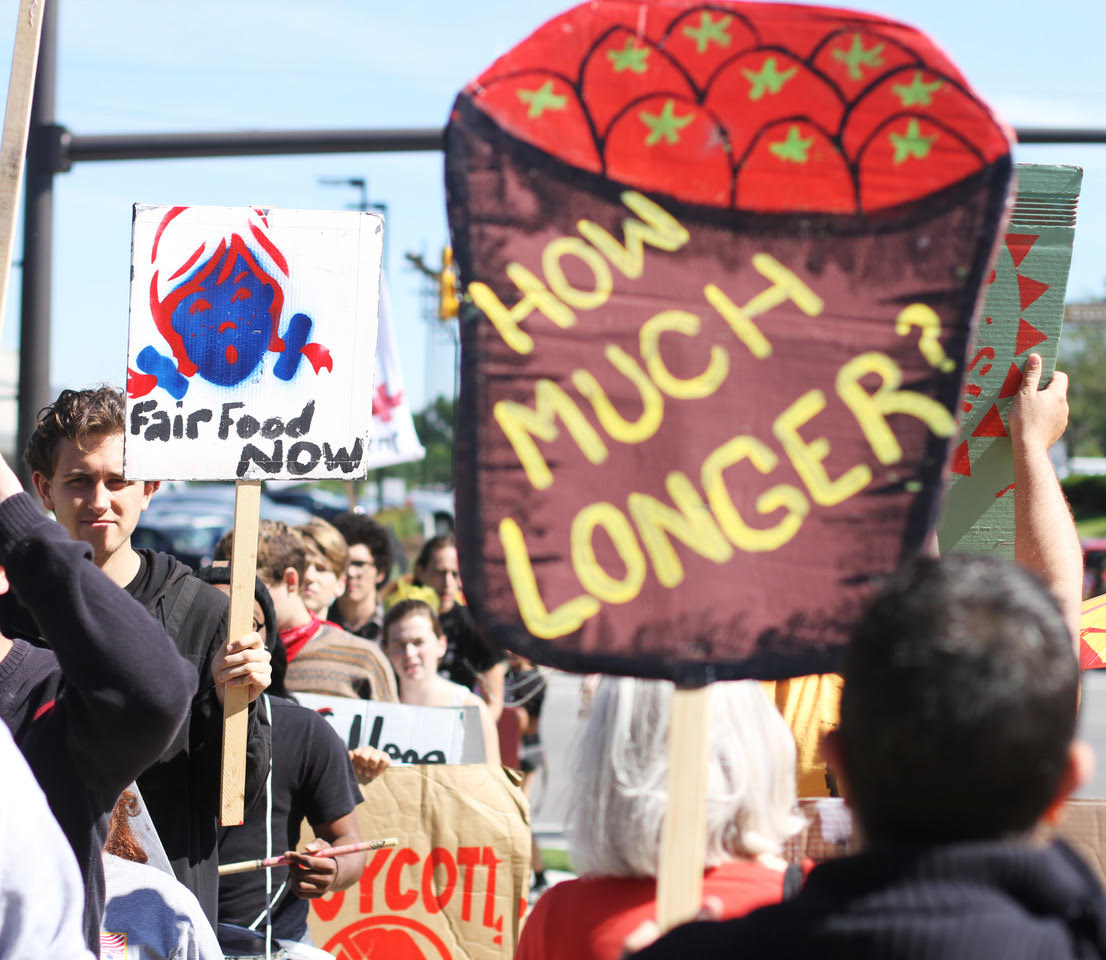July 30 Florida Interfaith Service and Action for Farmworker Justice
This Sunday, nearly twenty years after Bishop John Nevins of the Diocese of Venice beseeched six farmworkers to break their hunger strike – then in its thirtieth day – 150 farmworkers and people of faith from around Southwest Florida gathered to break a thirty-day rolling fast undertaken by nearly 40 Florida religious leaders throughout the month of July.
The Interfaith Service for Farmworker Justice was a living embodiment of the shoulder-to-shoulder, decades-long commitment between people of faith here in Southwest Florida and their farmworker neighbors to transform poverty and abuse in the fields – and it served as a formidable commissioning for the work ahead to bring Wendy’s to the Fair Food Program as the next step towards an agricultural industry in which women work free from violence, and where all are treated with dignity.
The service, held at Naples UCC in partnership with the Coalition of Immokalee Workers, the Alliance for Fair Food, Temple Shalom, the Unitarian Universalist Congregation of Greater Naples, and St. Mark’s Episcopal Church, reminded all present again and again that true faith must be put into action. The service began with Julia de la Cruz of the CIW and Rev. Beverly Duncan of Naples UCC grounding the gathering in the reality of farmworkers in nearby Immokalee: Wendy’s, the third-largest hamburger chain in the world, has moved their purchasing from Florida farms implementing the Fair Food Program to farms in Mexico where human rights are trampled upon. In so doing, Wendy’s is profiting from the desecration of the humanity of farmworker families, from Immokalee to Mexico, which has long plagued the industry.
With the remembrance of the reality of farmworker neighbors fixed firmly in the minds of all congregated, evangelical pastor and author Brian McLaren offered a prayer that God would “make us hungry and thirsty for justice,” speaking to the heart of fasting’s spiritual significance and lifting up the vision of all religions for a world in which justice is realized.
Invoking this deep and wide history of people of faith acting for justice, Cantor Donna Azu of Temple Shalom read from Isaiah 58:6-11: “Is this not the fast I have chosen, to undo the bonds of wickedness?” Wesley Snedeker, student pastor at Naples UCC and seminarian at Chicago Theological Seminary, followed with a reading from Matthew 25:31-40, in which Jesus tells his disciples, “Whatever you did for one of the least of these brothers and sisters of mine, you did for me.” Rev. Roger Grugel of the UU Congregation of Greater Naples then illustrated the profound connections between the work of abolitionist Frederick Douglass – enslaved ‘til he was twenty years old, he went on to lead struggles for abolition, women’s rights, and economic justice throughout his entire life – and that of farmworkers fighting for their own dignity today.
The hundreds-year-long struggle for justice, the call of faith to act, the realities faced by farmworkers – all was brought home in a potent sermon by Lupe Gonzalo of the CIW, summed up here:
“Together, we are showing Wendy’s that we are not alone, that we are not going to permit Wendy’s to support violence against women … Let your hearts reach out and call upon them, human being to human being, to become part of this new world of justice we are creating together.
Now our voices sing the melody of hope, our tears have risen as strength. Violence against women must stop: Let us keep fighting for justice and let God guide our path.”
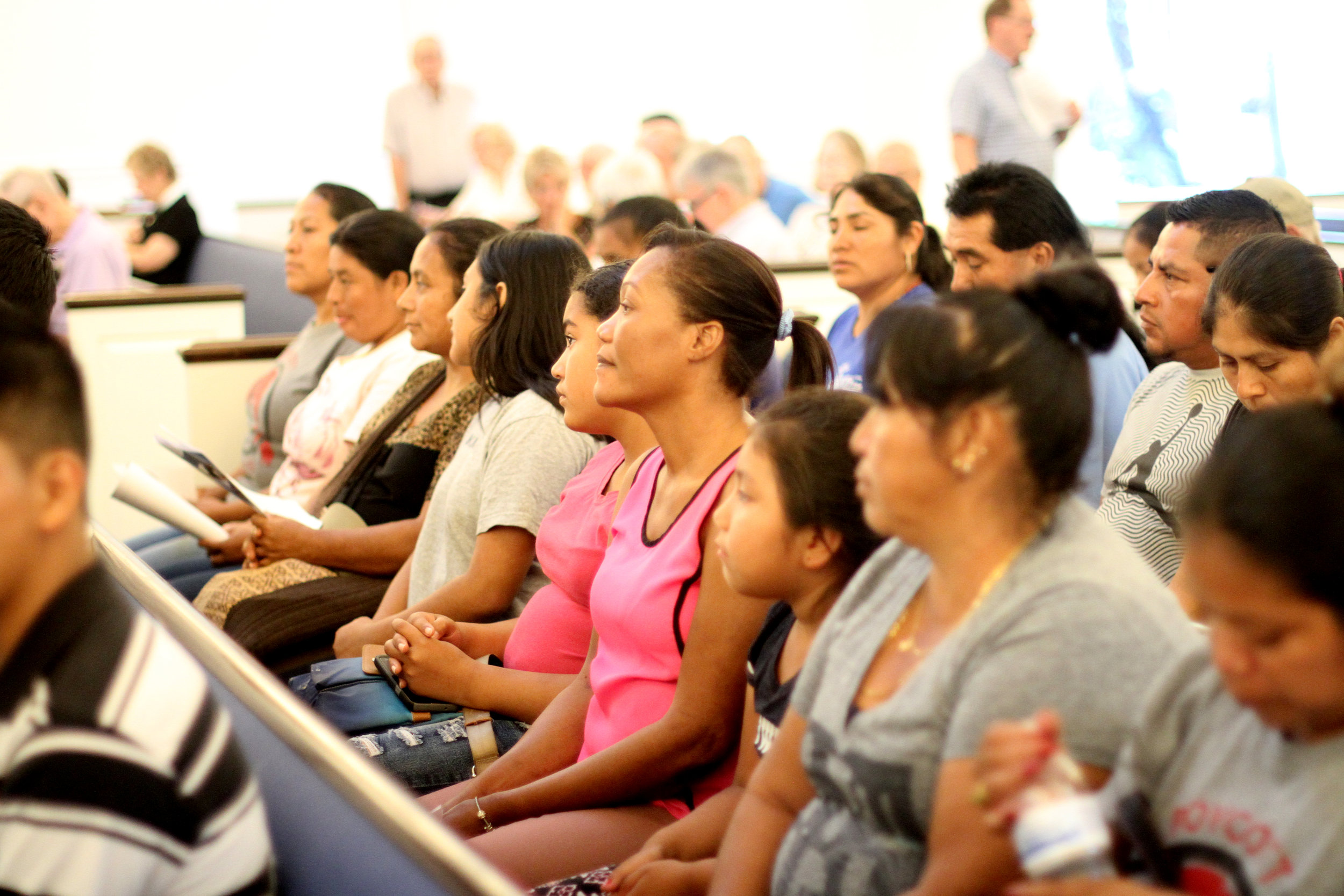
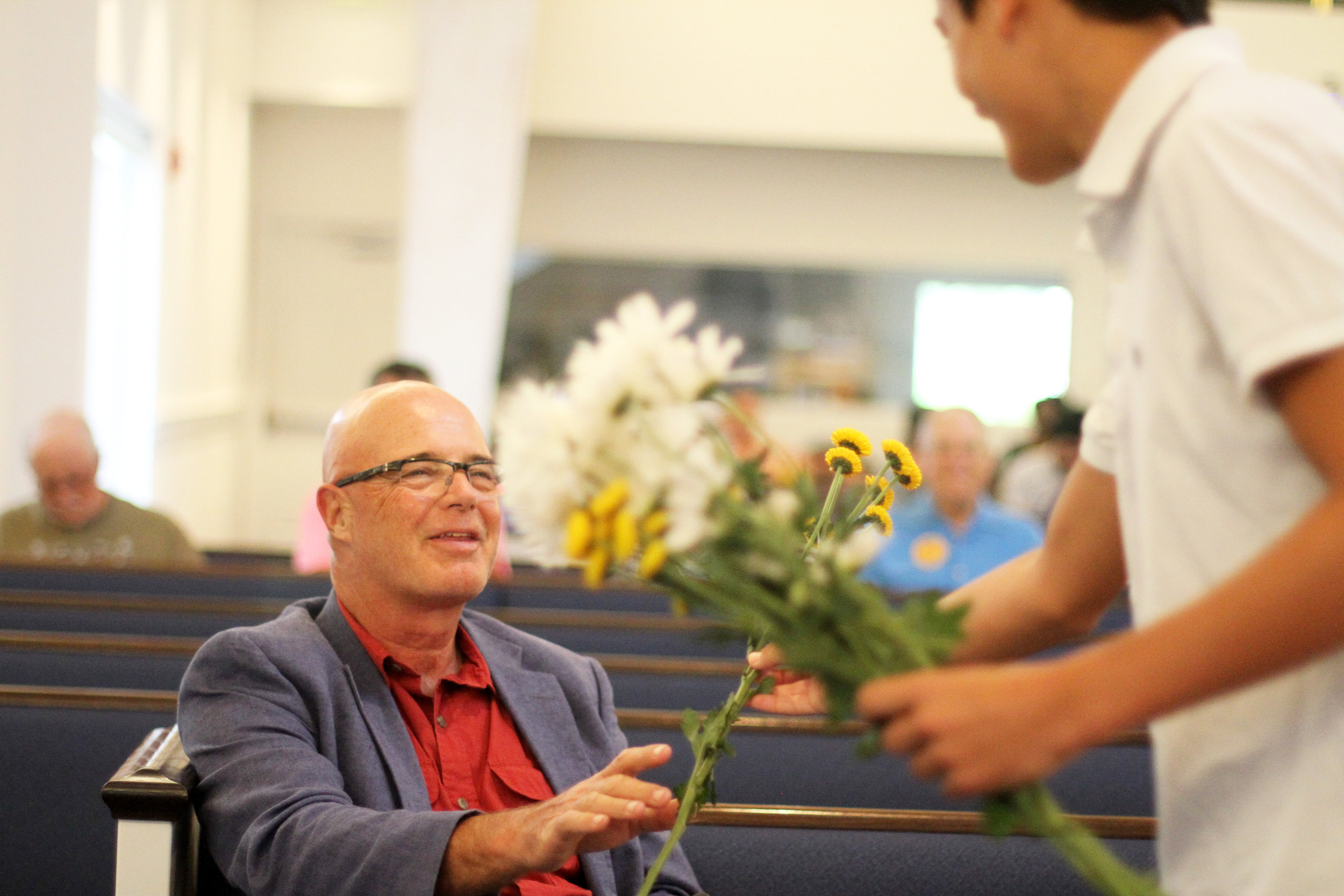
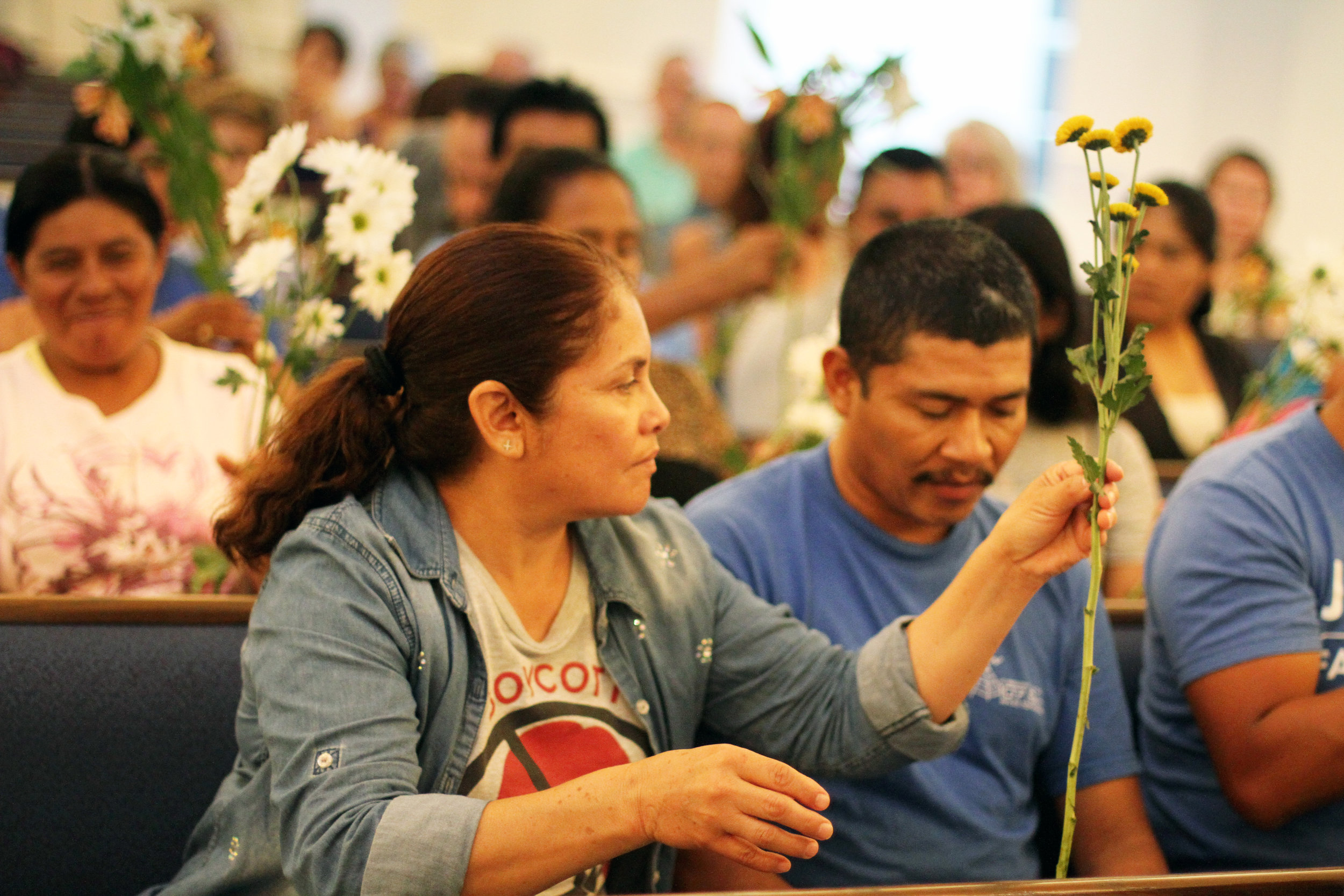
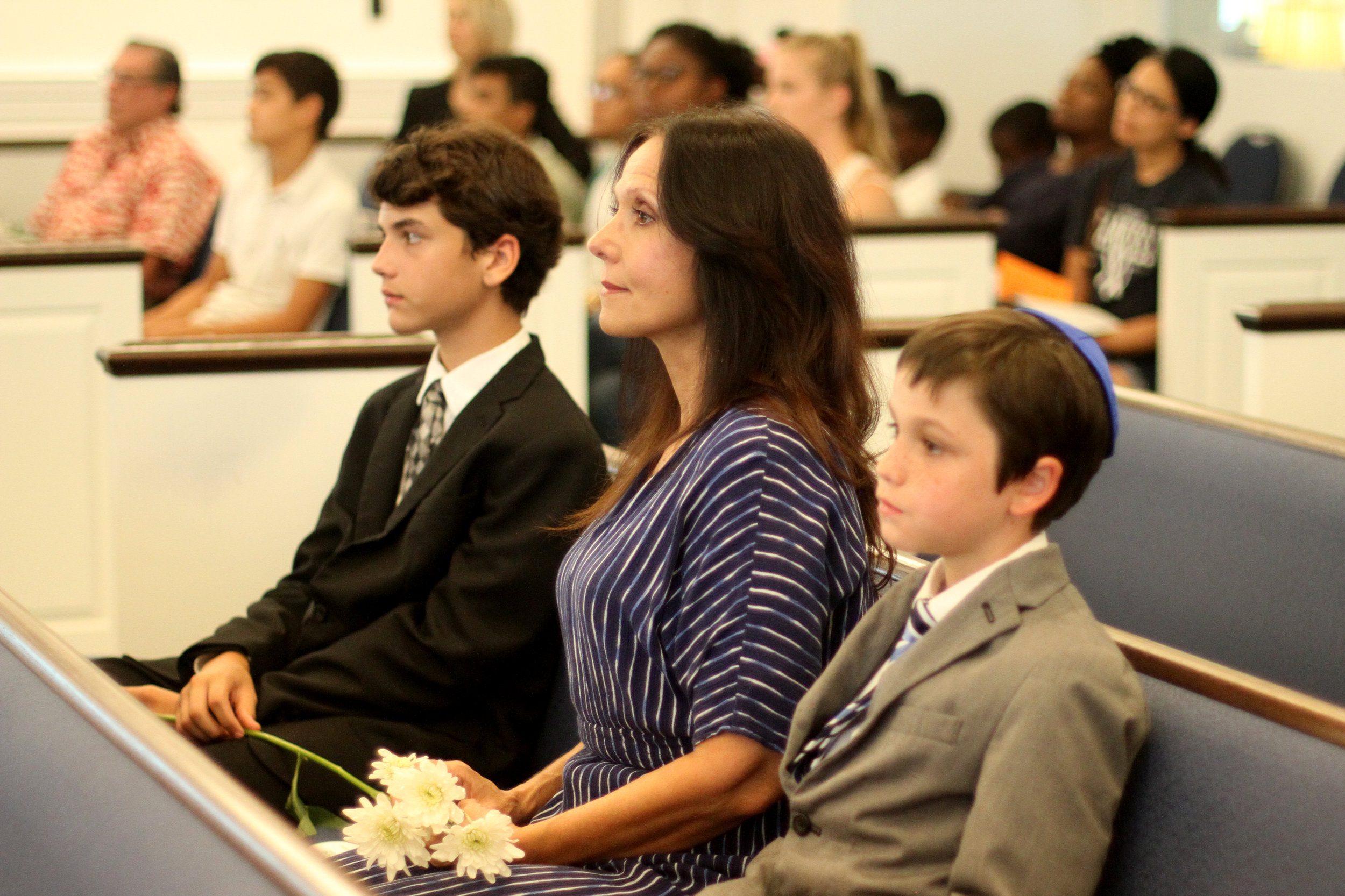
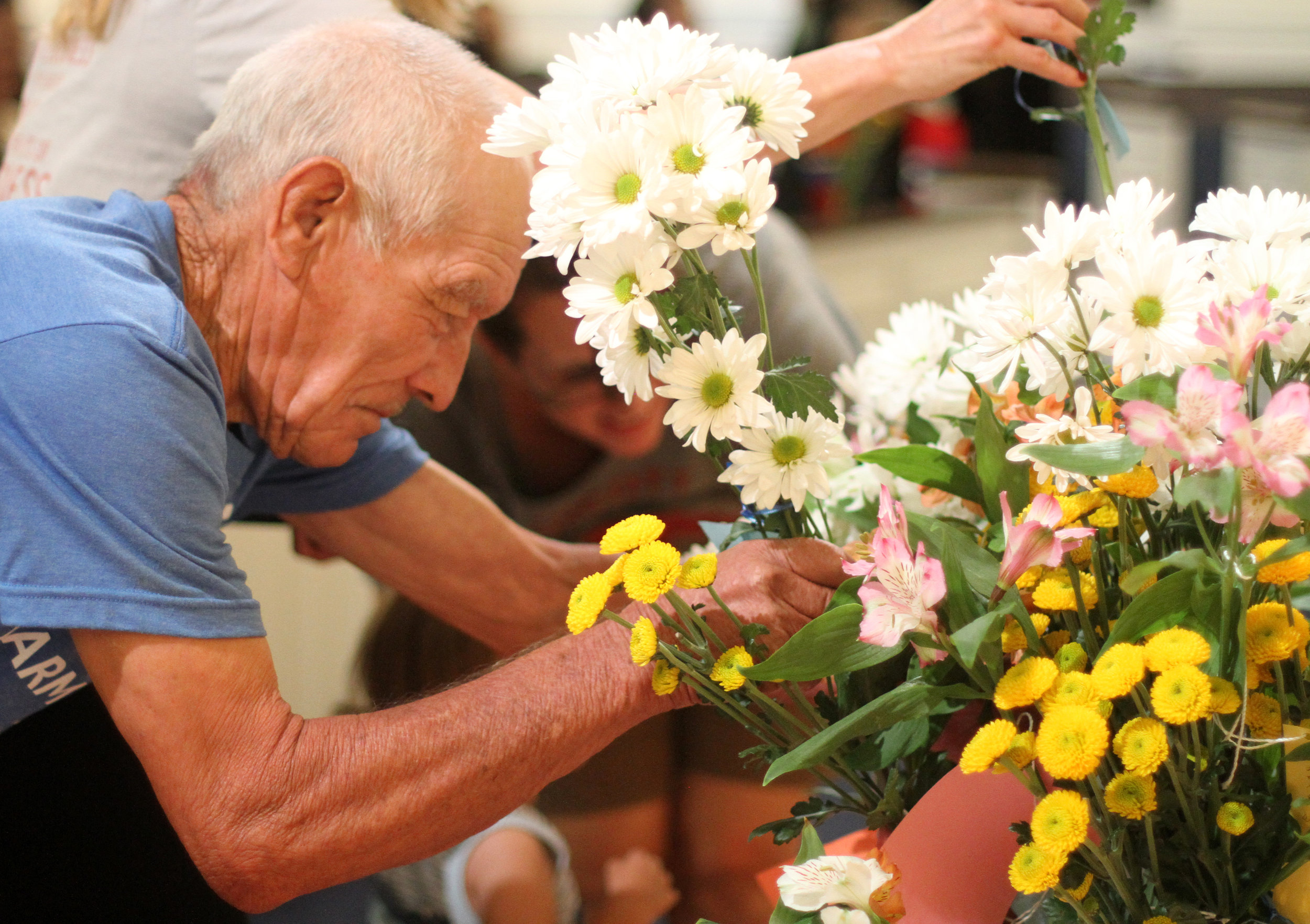
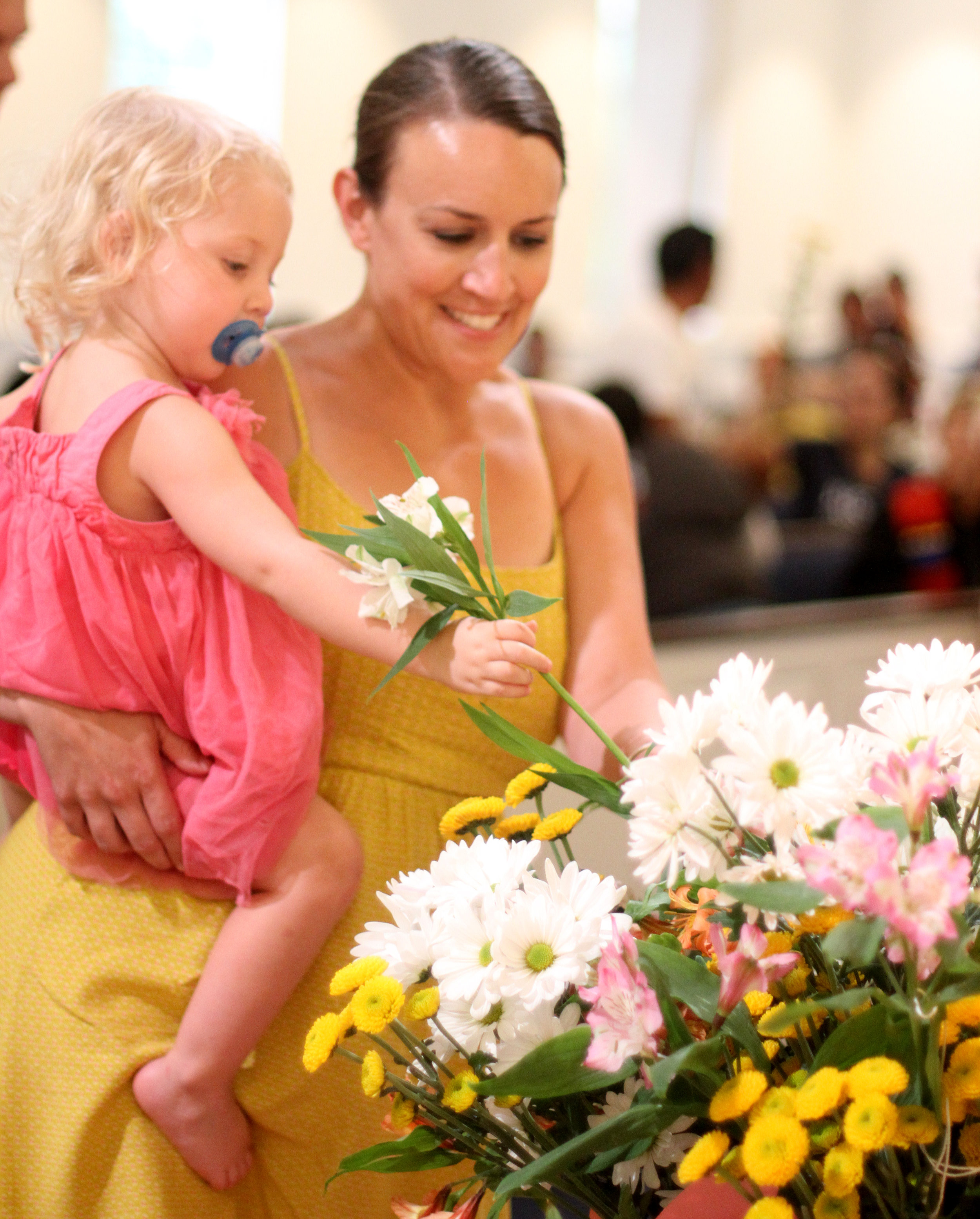
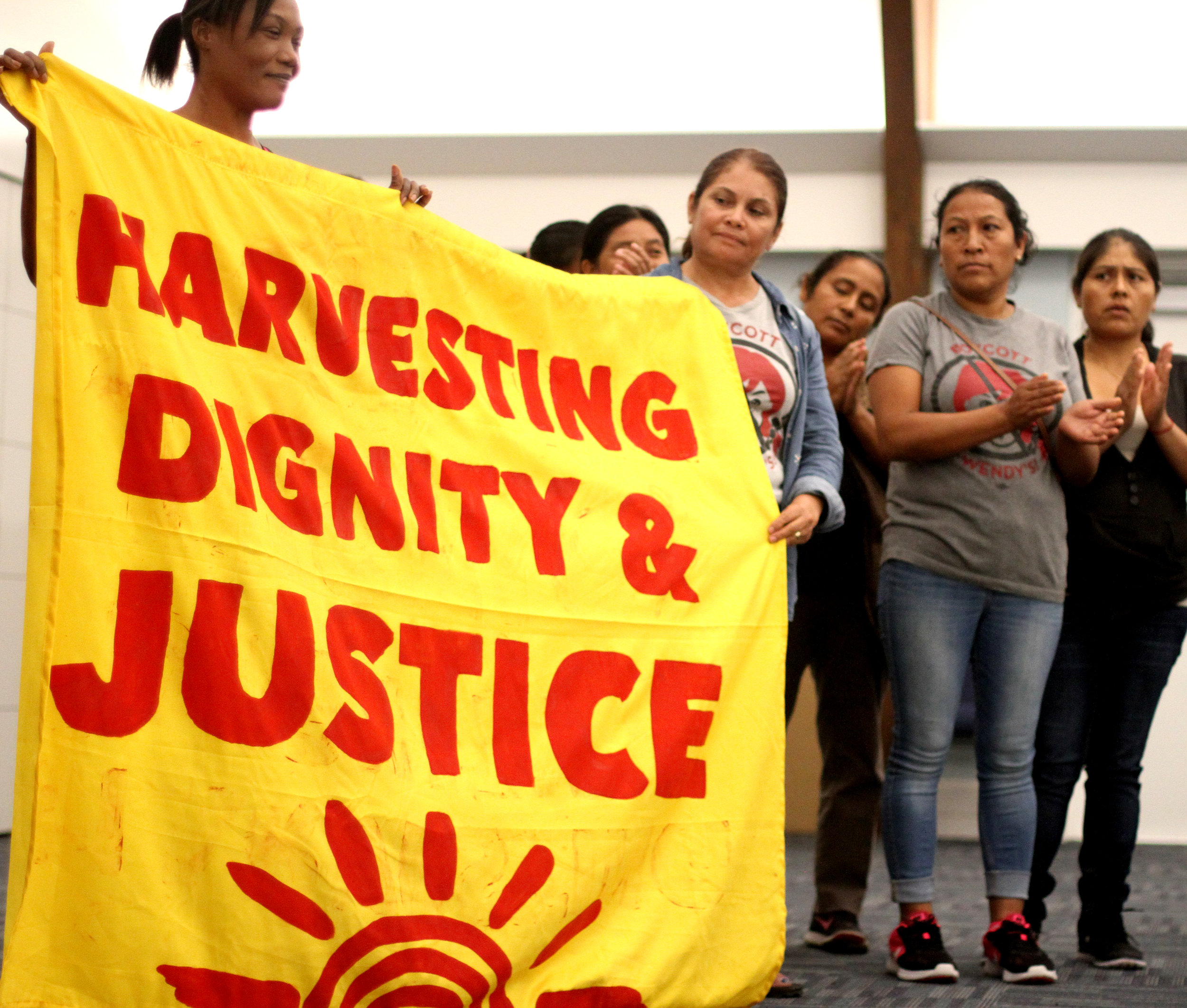
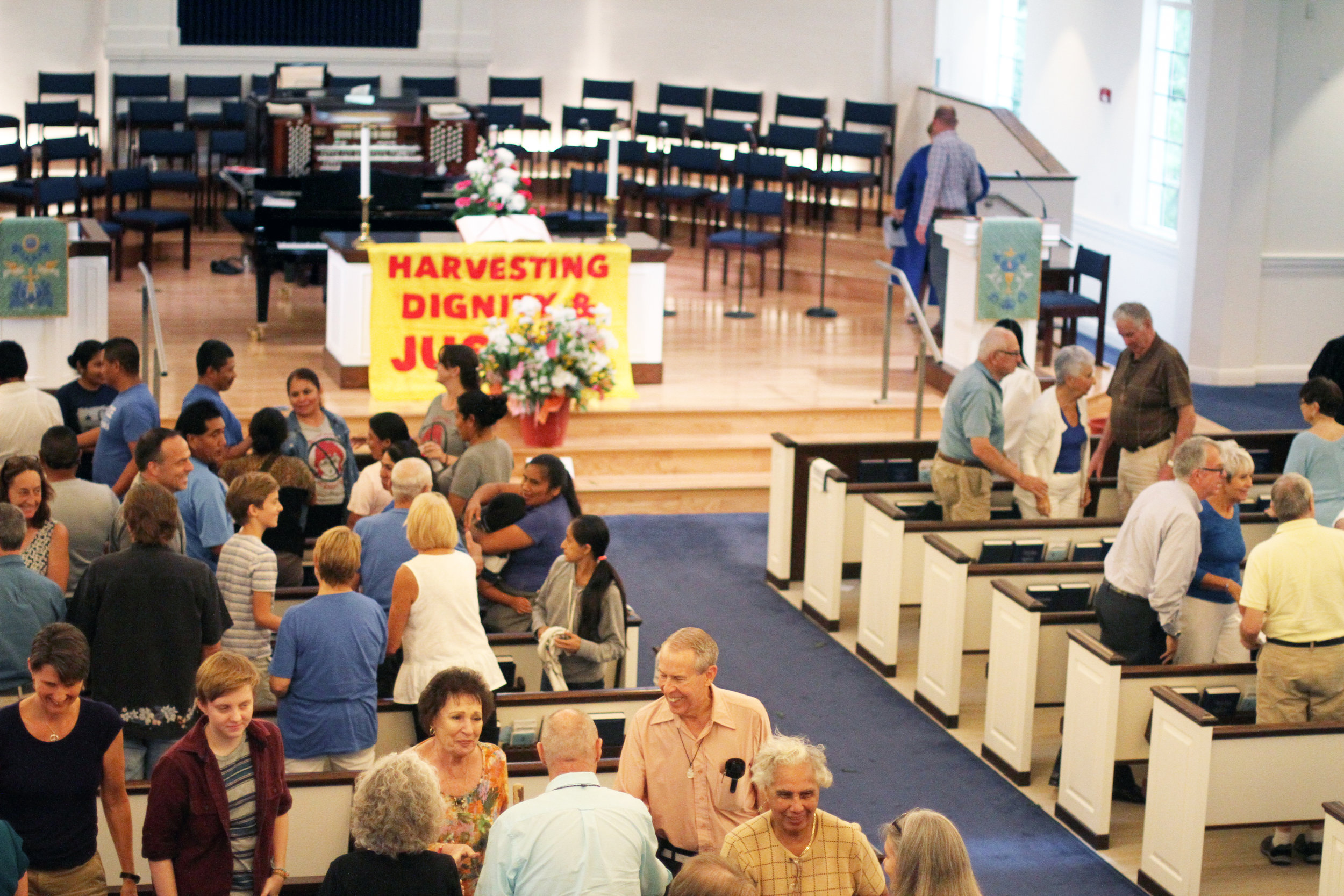
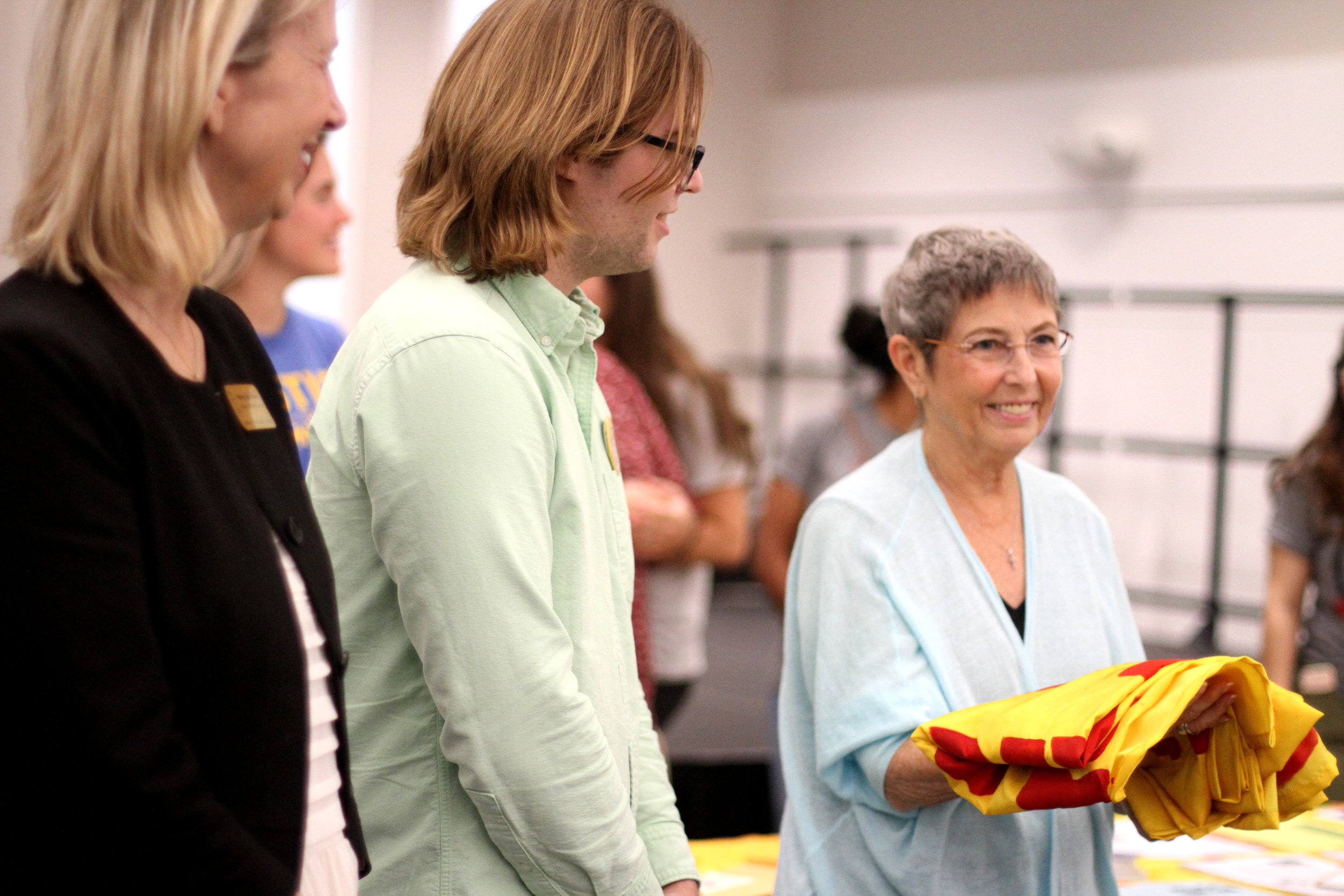
With her words lingering, over two dozen members of the Coalition of Immokalee Workers and nearly one hundred members of over a dozen United Church of Christ, Lutheran, Catholic, Presbyterian, Jewish, Episcopal, and Quaker congregations from Cape Coral to Marco Island processed forward to leave on the altar flowers tied to messages they’d written to Wendy’s representing farmworkers’ dream of ‘shalom’ – wholeness, restoration, and peace for all people.
To close the service, Wesley Snedeker echoed the broad-reaching vision of Gonzalo’s sermon with these words:
“We recognize and celebrate and bless the progress that has been made [in the agricultural industry due to the FFP], but God knows we don’t stop there. This is about a cultural change, a national change. This is about rearranging and overcoming the structures that keep so much from many so that it can be retained for a few. May we build in our nation a just system of labor that guarantees the rights and fair compensation for all involved. That mission continues here with us … To do the work of God as God intends us to do it, we have to go outside.”
And so, propelled by the energy of the service, the group went en masse to a local Wendy’s to deliver the flowers and messages created and make public the vision for the just future of which Wendy’s could – and someday, will – be a part. As attendees prayed, sang, and marched, nearly 50 additional local supporters joined the crowd. Thunder rumbled overhead, and the ánimo of the action became even more joyful and insistent.
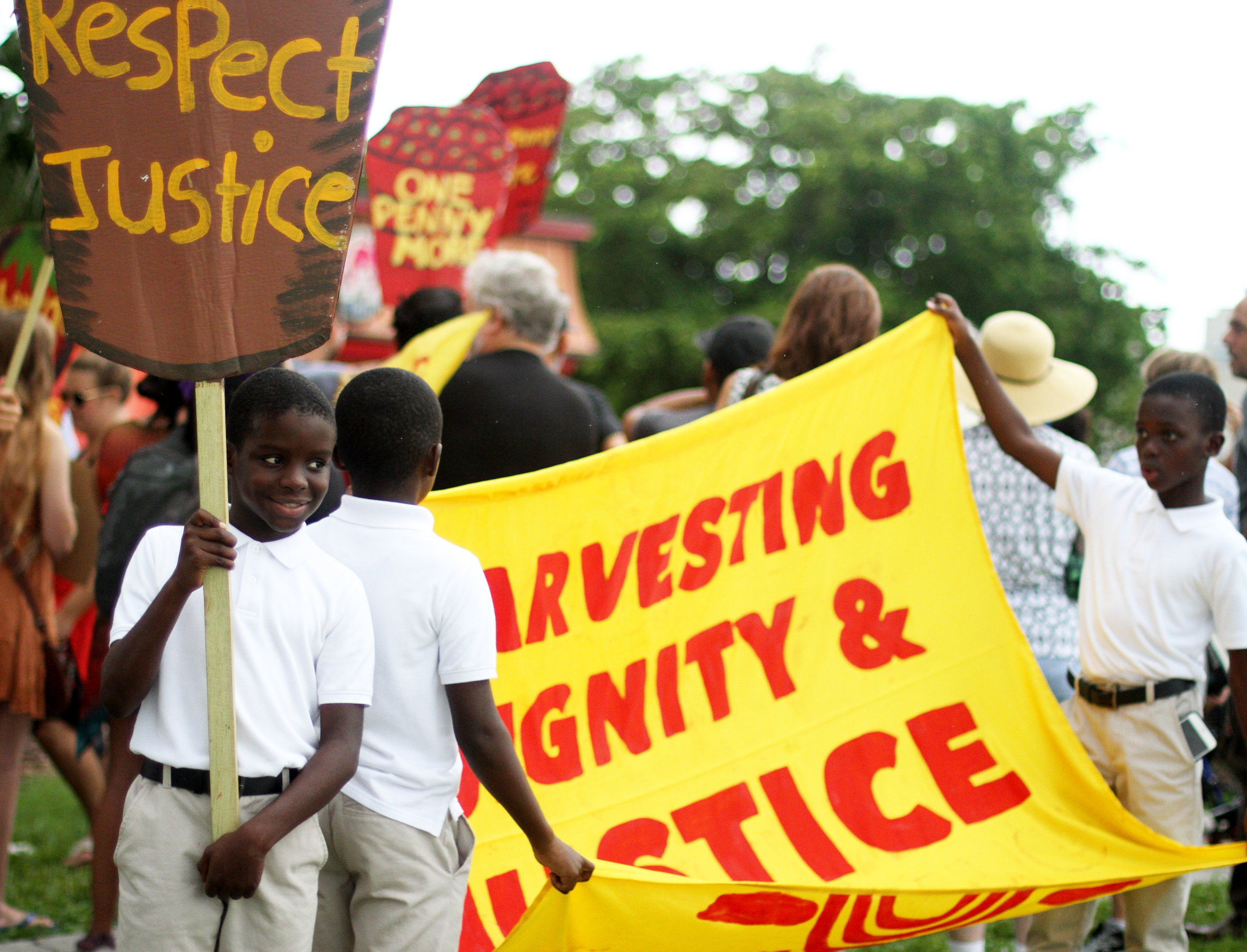
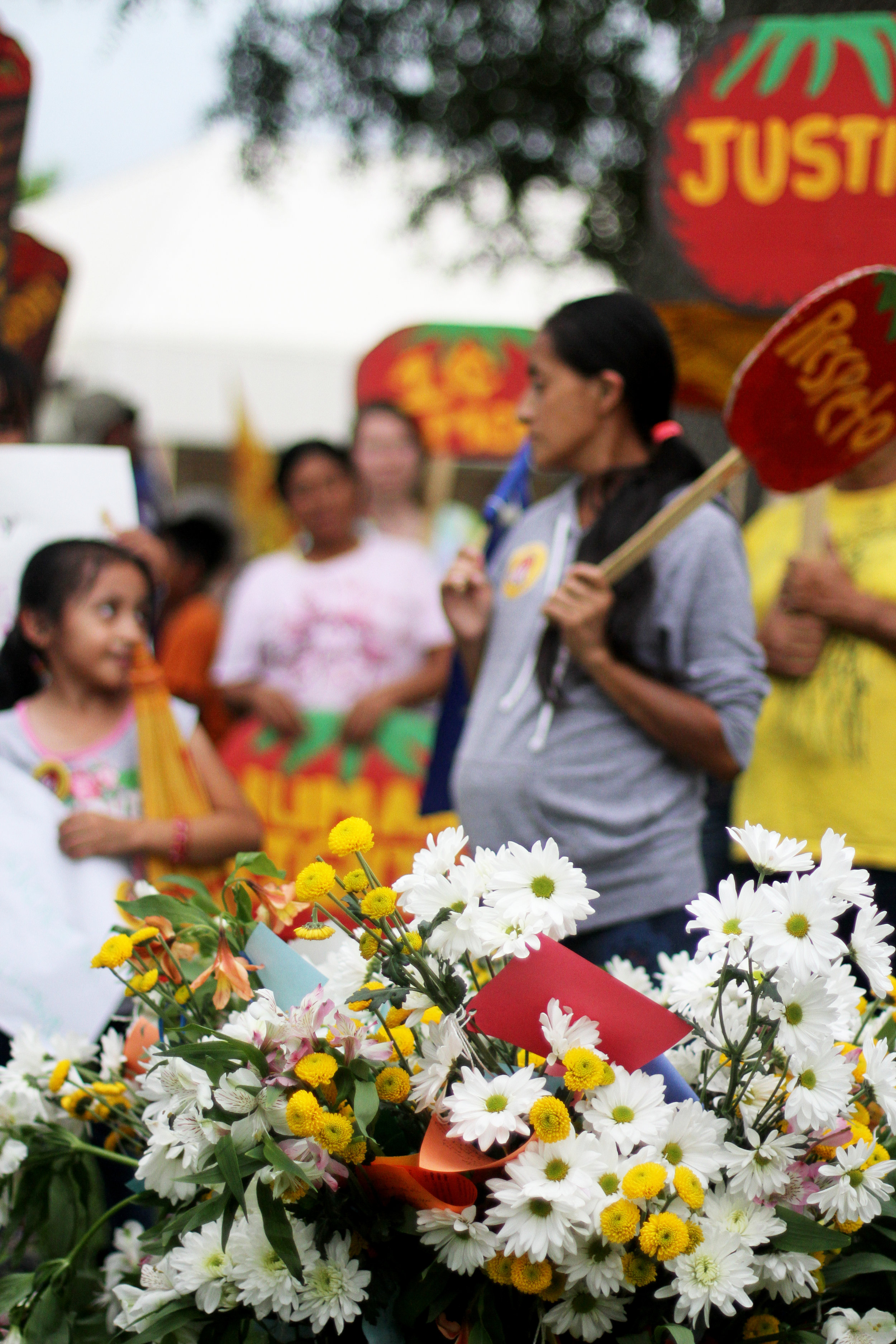
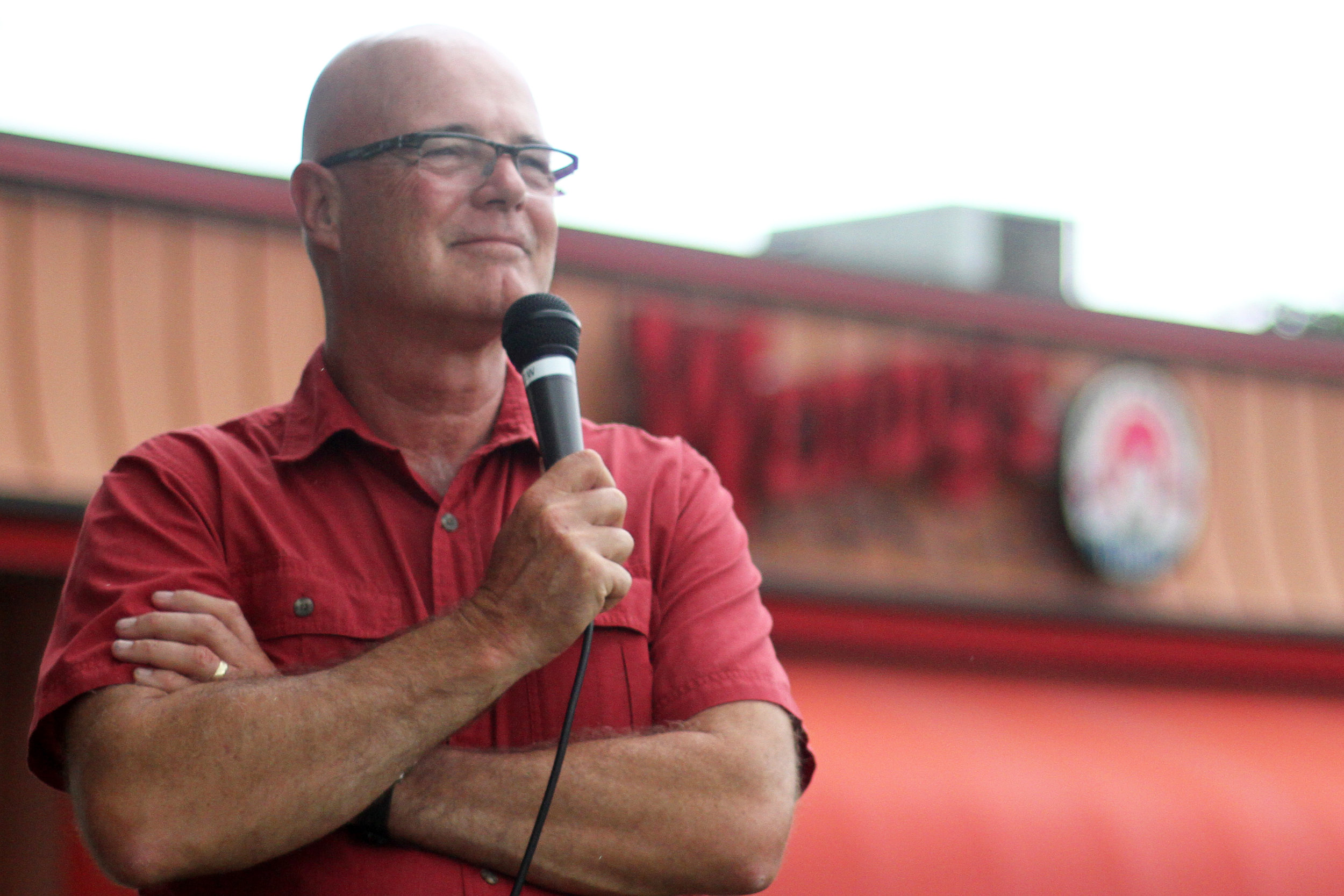
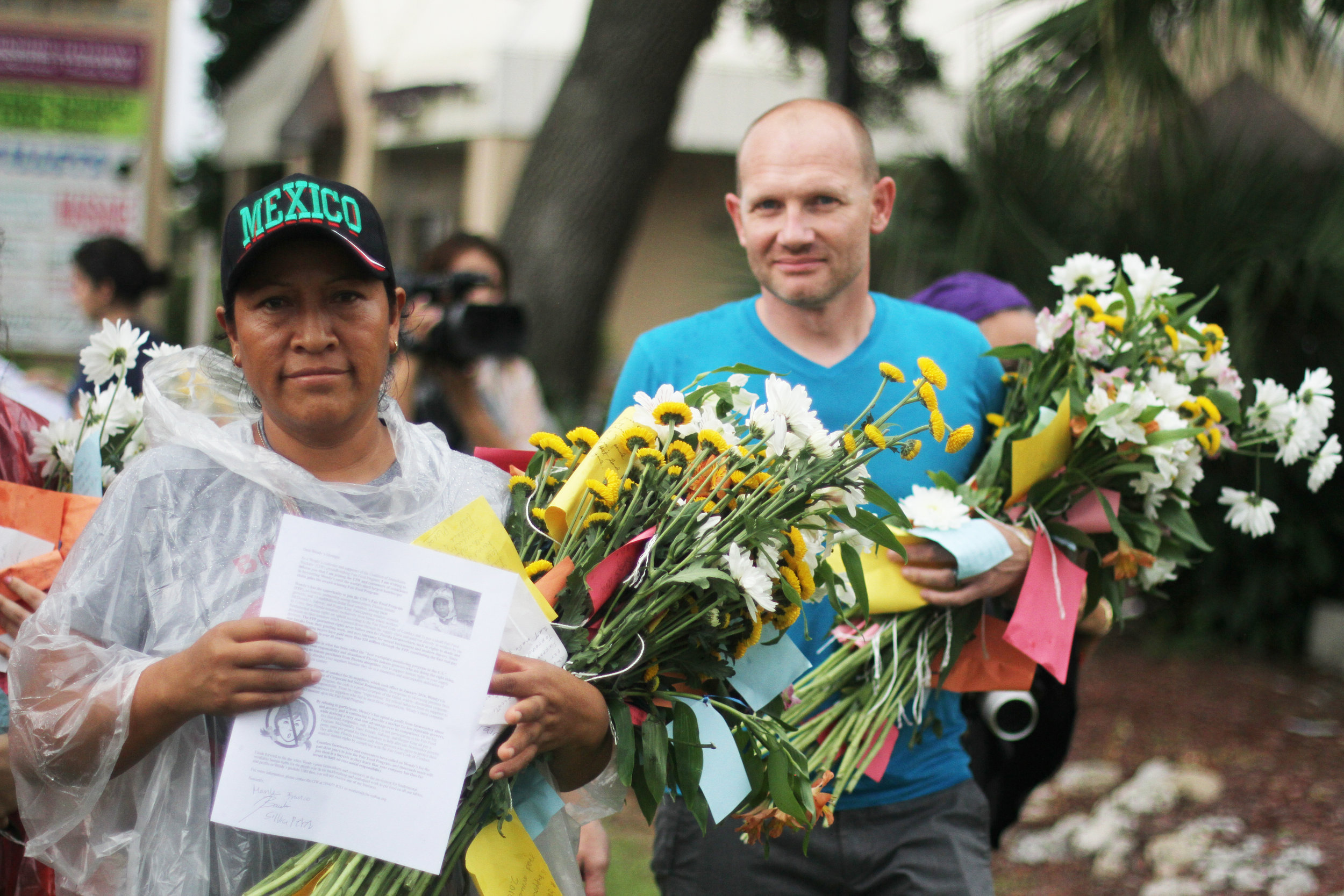
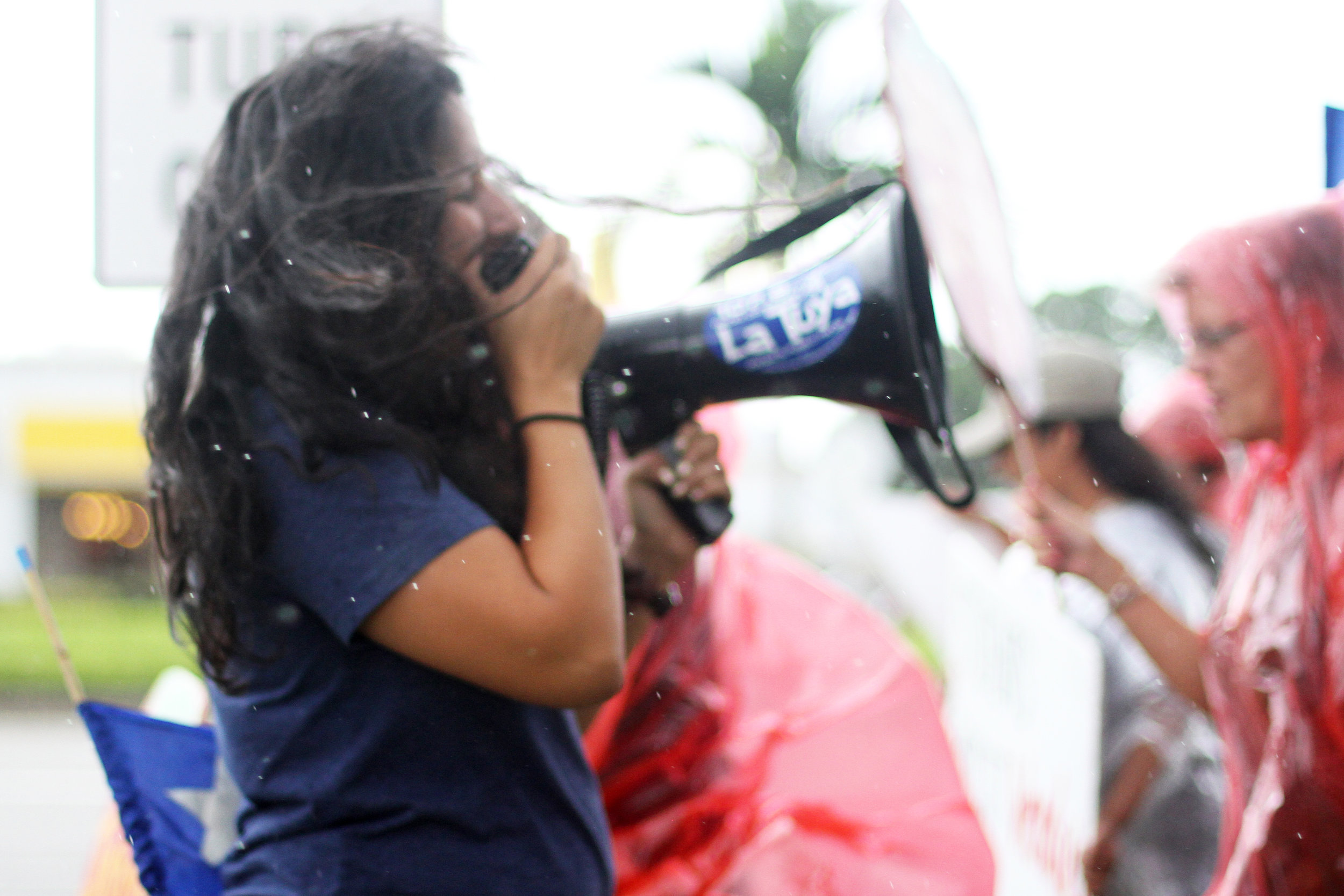
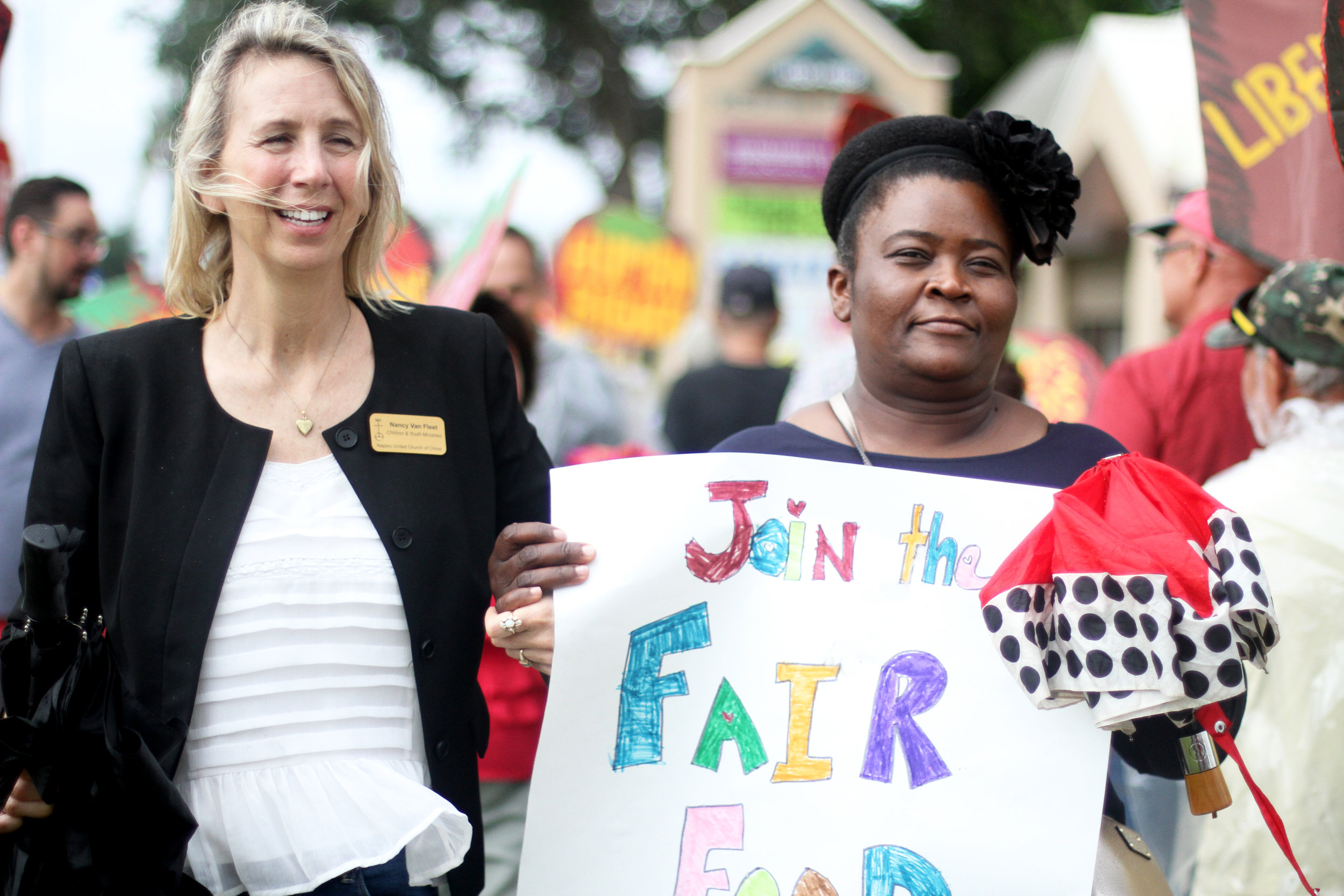
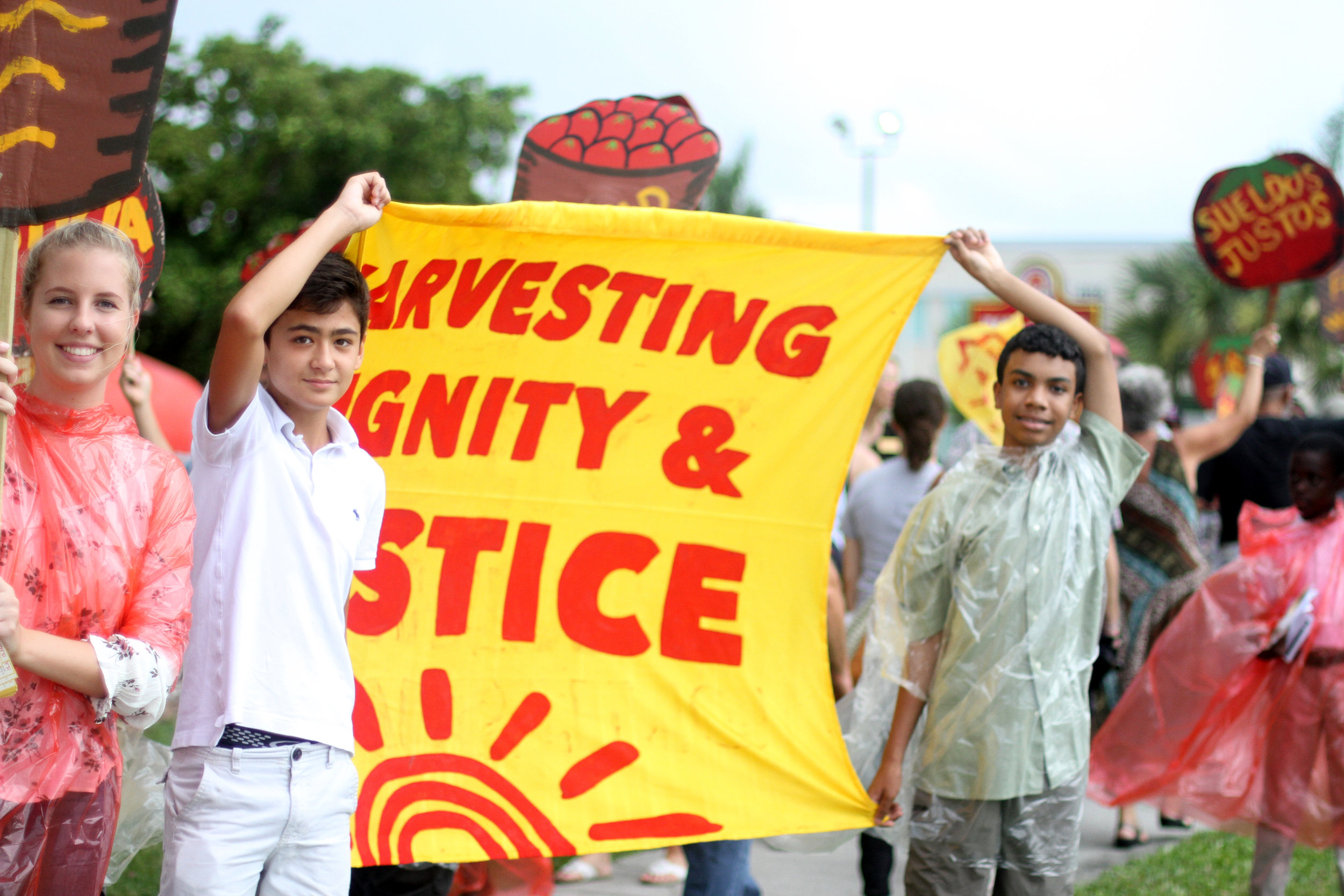
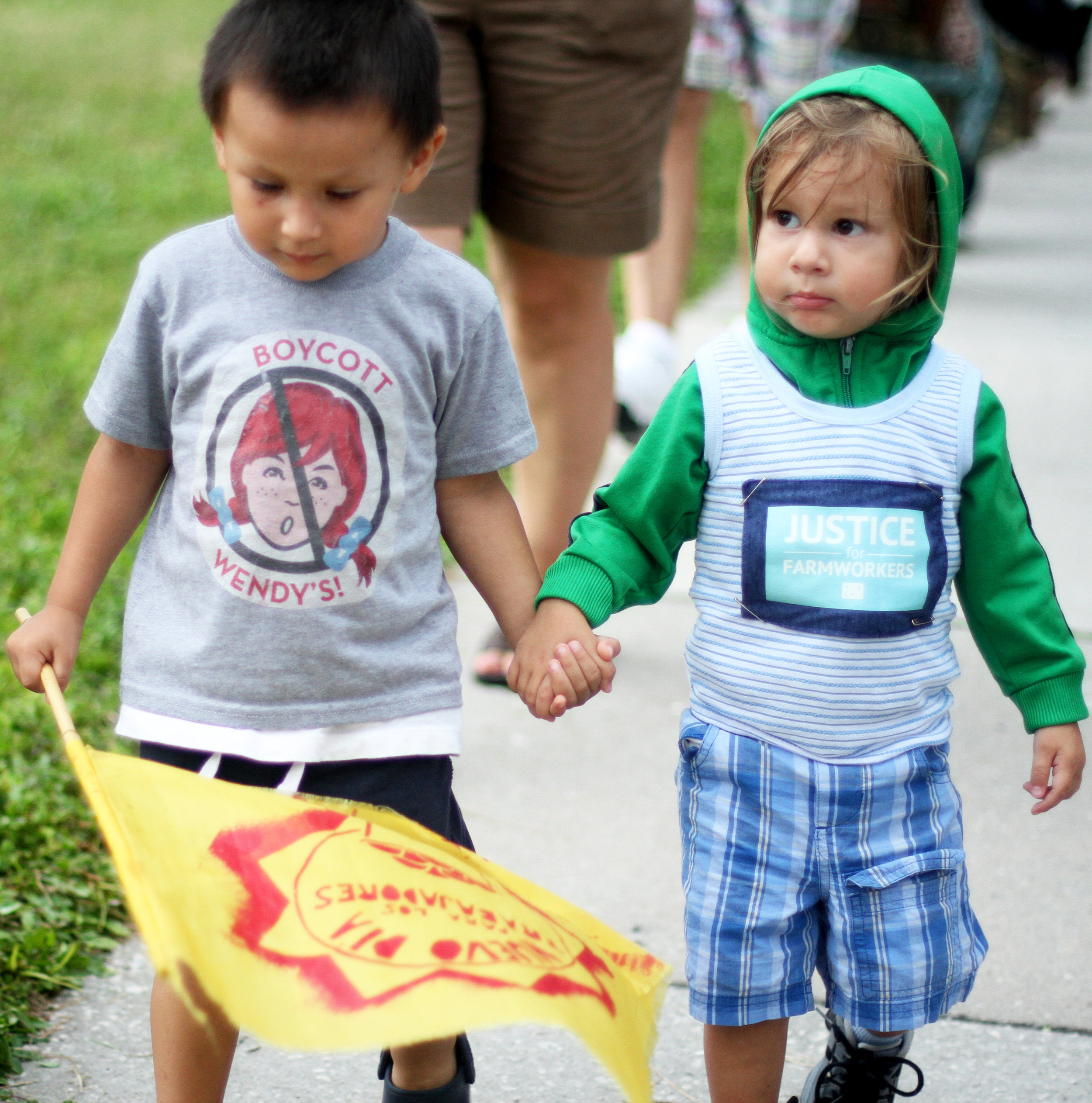
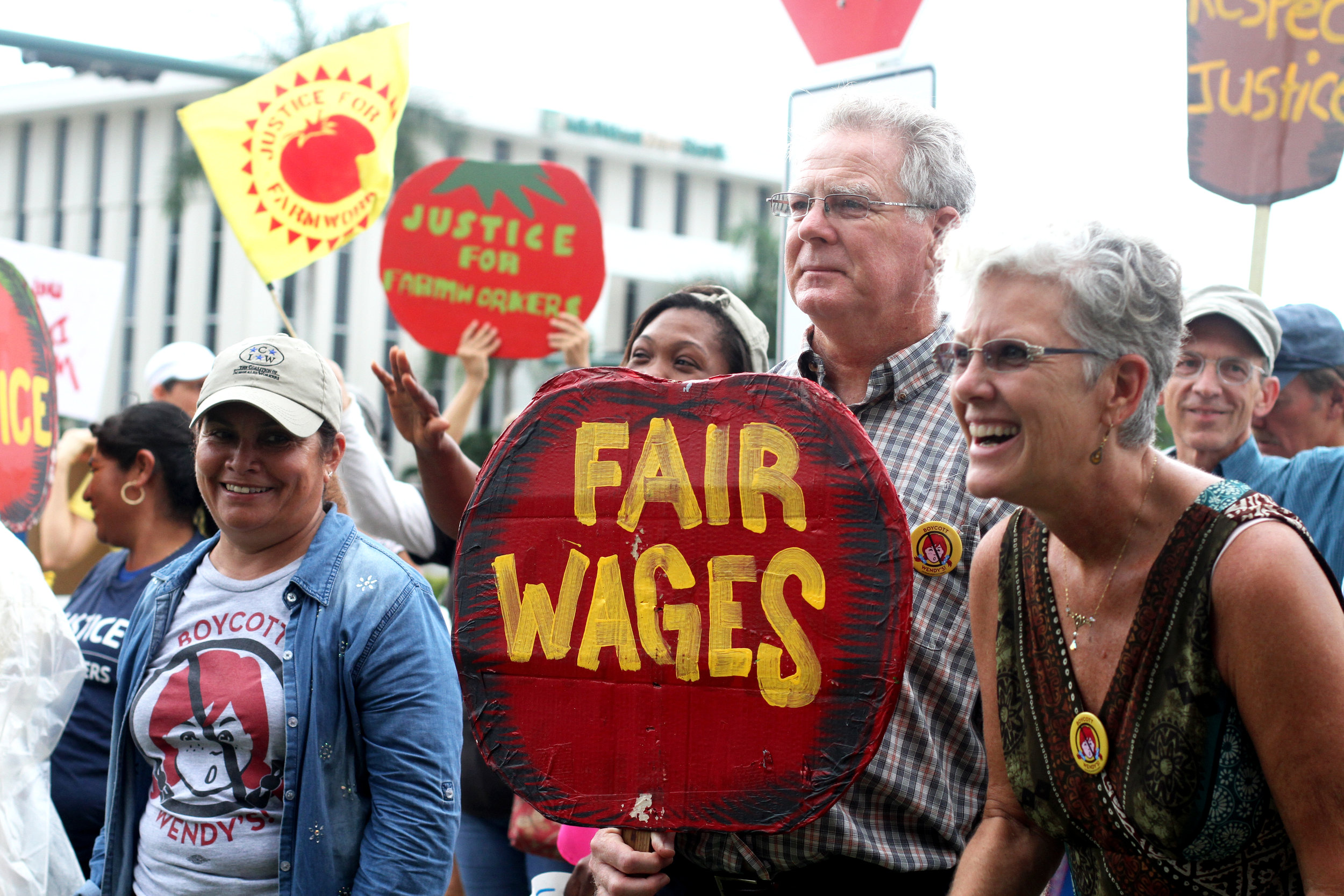
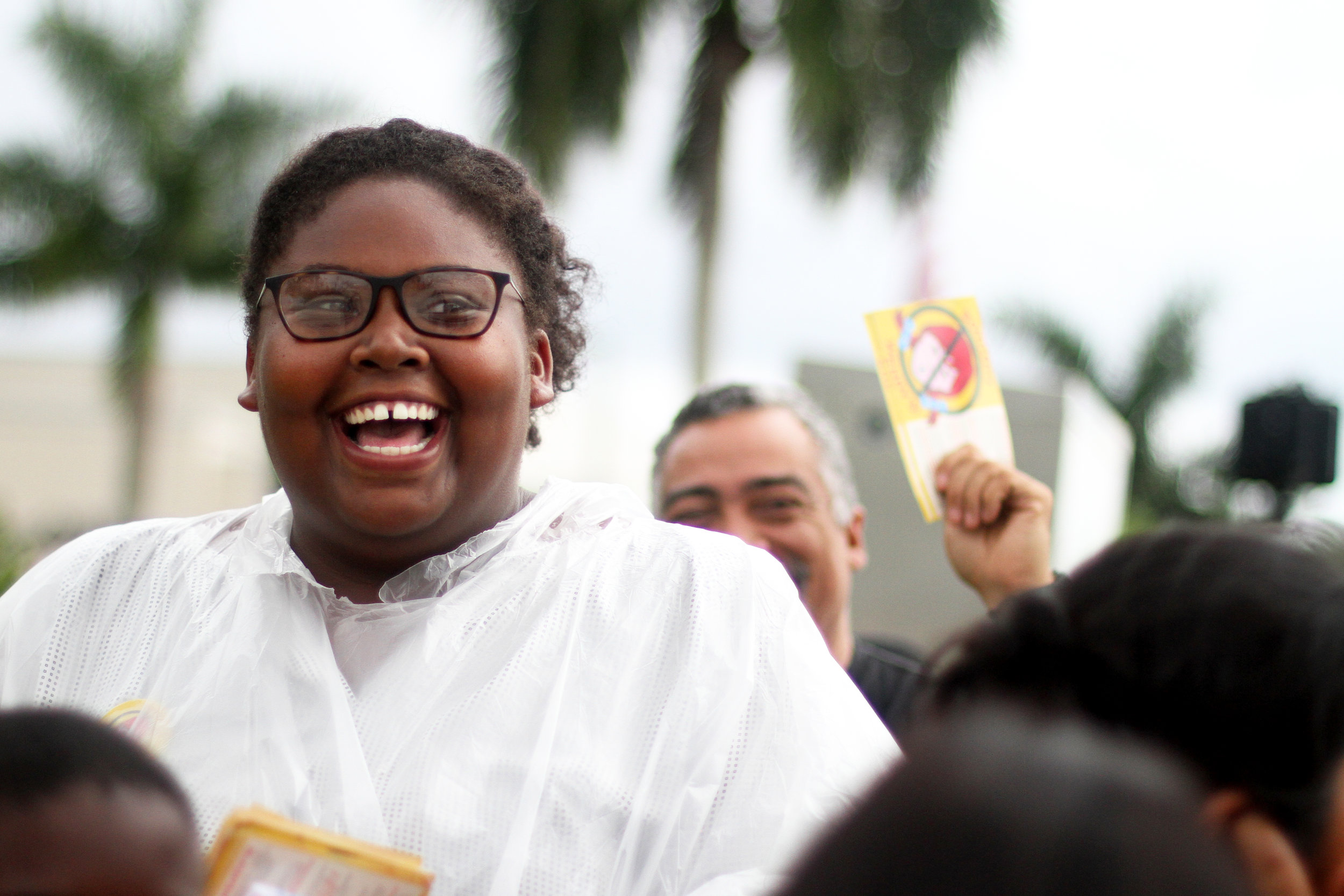
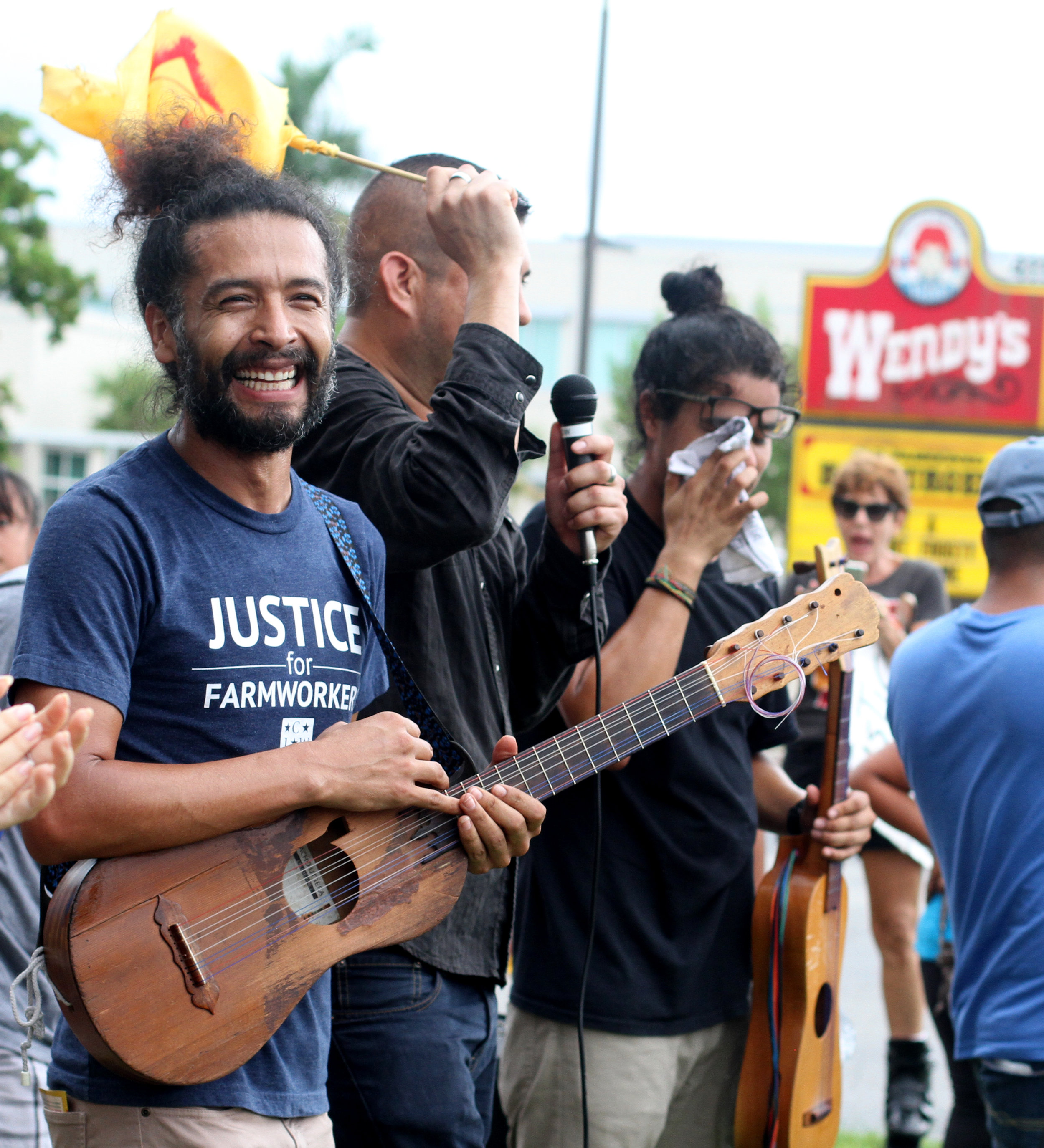
Buoyed and determined to communicate the reason for such action to Wendy’s representatives, Silvia Perez of the CIW led a delegation of Marilé Franco of Florida Gulf Coast University and Josh Baudin of St. Mark’s Episcopal Church to speak with the store manager. Men barred them from entering and refused to accept the letter or even discuss its contents – a representation of Wendy’s executives’ refusal to even speak with farmworkers.
Undeterred, the delegation returned to join the crowd, reminding those gathered that though store managers may have cowered today, Wendy’s would surely hear the group’s message as all the written messages would be sent to Wendy’s headquarters in Dublin, OH – and someday soon, as we continue to put faith in action, Wendy’s will join the Fair Food Program. With commitment by the Southwest Florida faith community to sustain this struggle reaffirmed through the day of prayer and action, those gathered dispersed.
As Lupe Gonzalo of the CIW exhorts us in her sermon:
“The gospel of Matthew reminds us that it is about what we do when we see another of us imprisoned, hungry, suffering. It is about what we are doing to build a new kind of economy, a structural solution to the immoral operations of supply chains that chew up human beings. And your witness as the religious community, your willingness to unite together with us, demonstrates the kind of world God longs for.”
Strengthened by this month of fasting undertaken by the Florida Faith network of the Alliance for Fair Food, let us continue unfailing in the struggle for justice, dignity, and a new economy that is built upon our morals rather than on the backs of our brothers and sisters. “Amen, and may it be so!”
Head to the Coalition of Immokalee Workers’ website for a photo report, and stay tuned for more opportunities to take action in Florida and beyond. And if you haven't yet made your donation to the Wendy's Boycott Fund to help the Alliance for Fair Food sustain the action into the coming season, it's not too late -- you can make a contribution here.




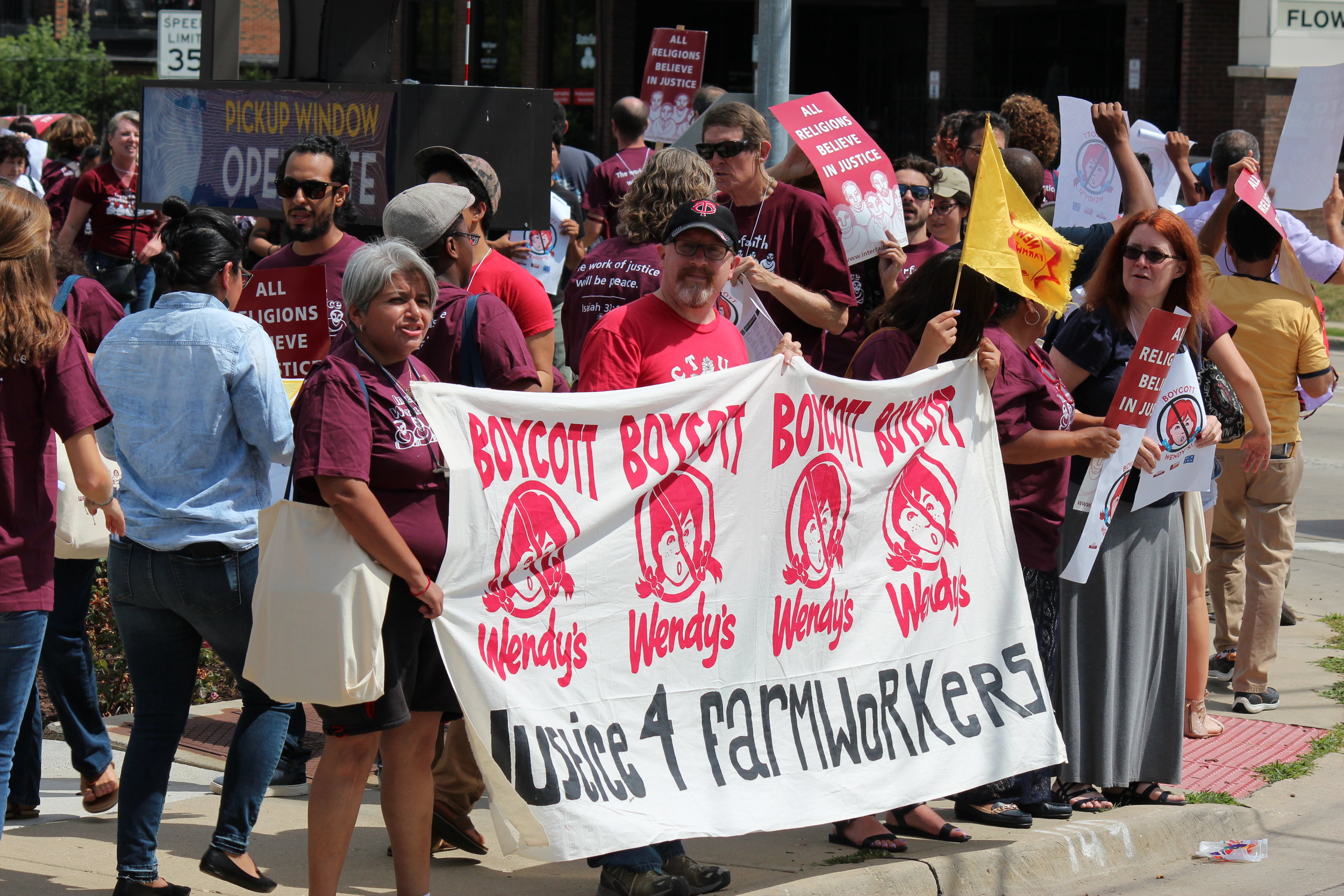
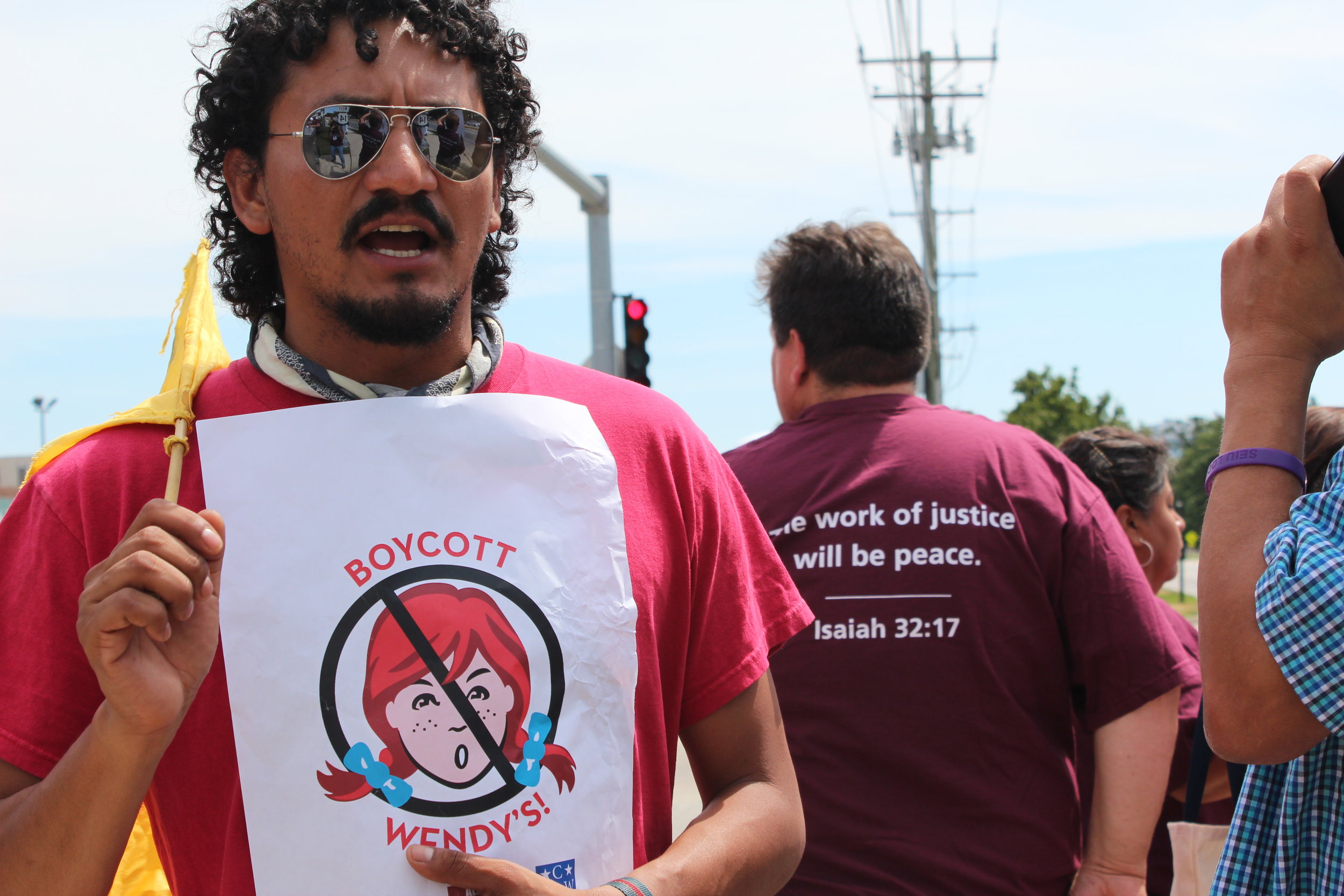
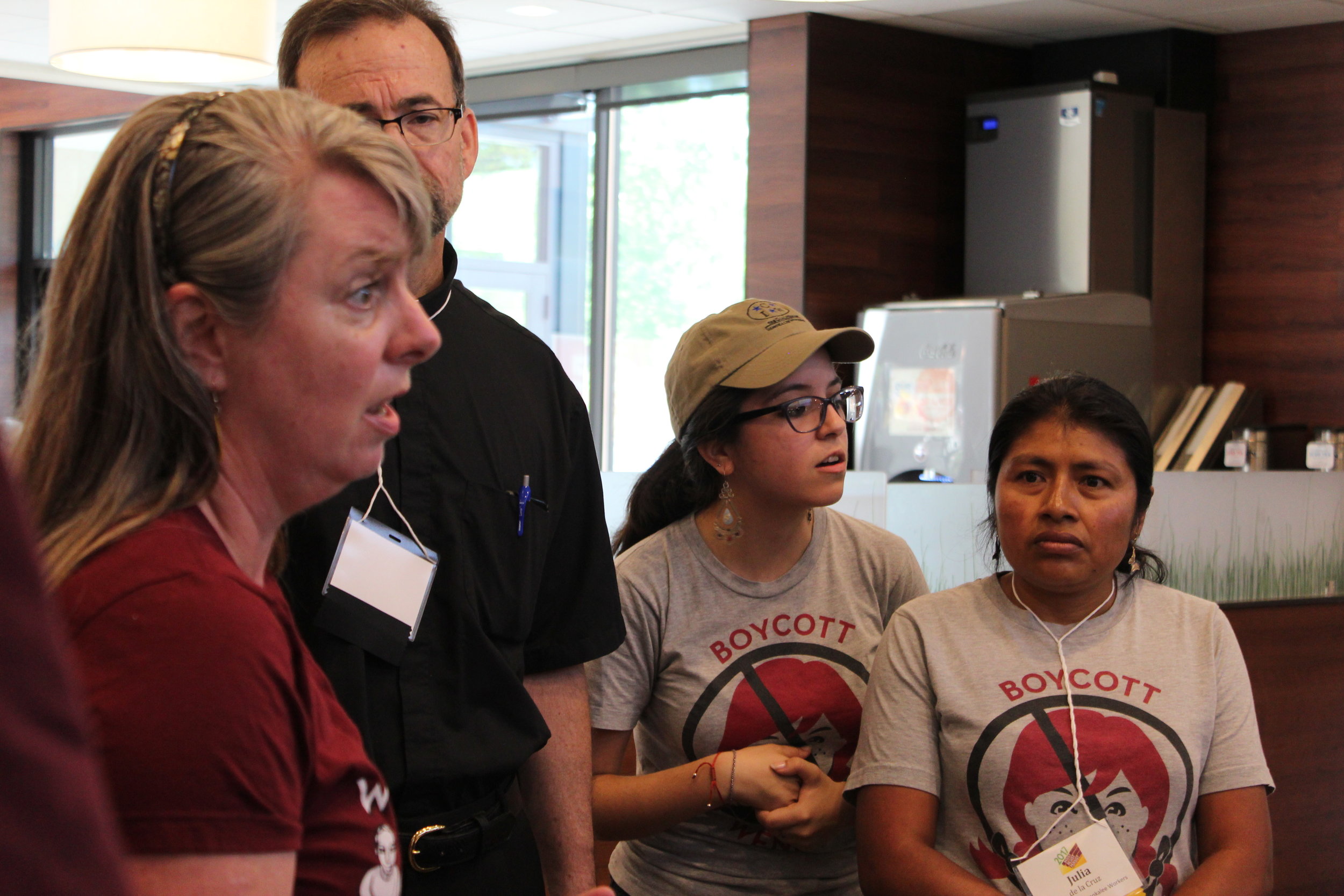
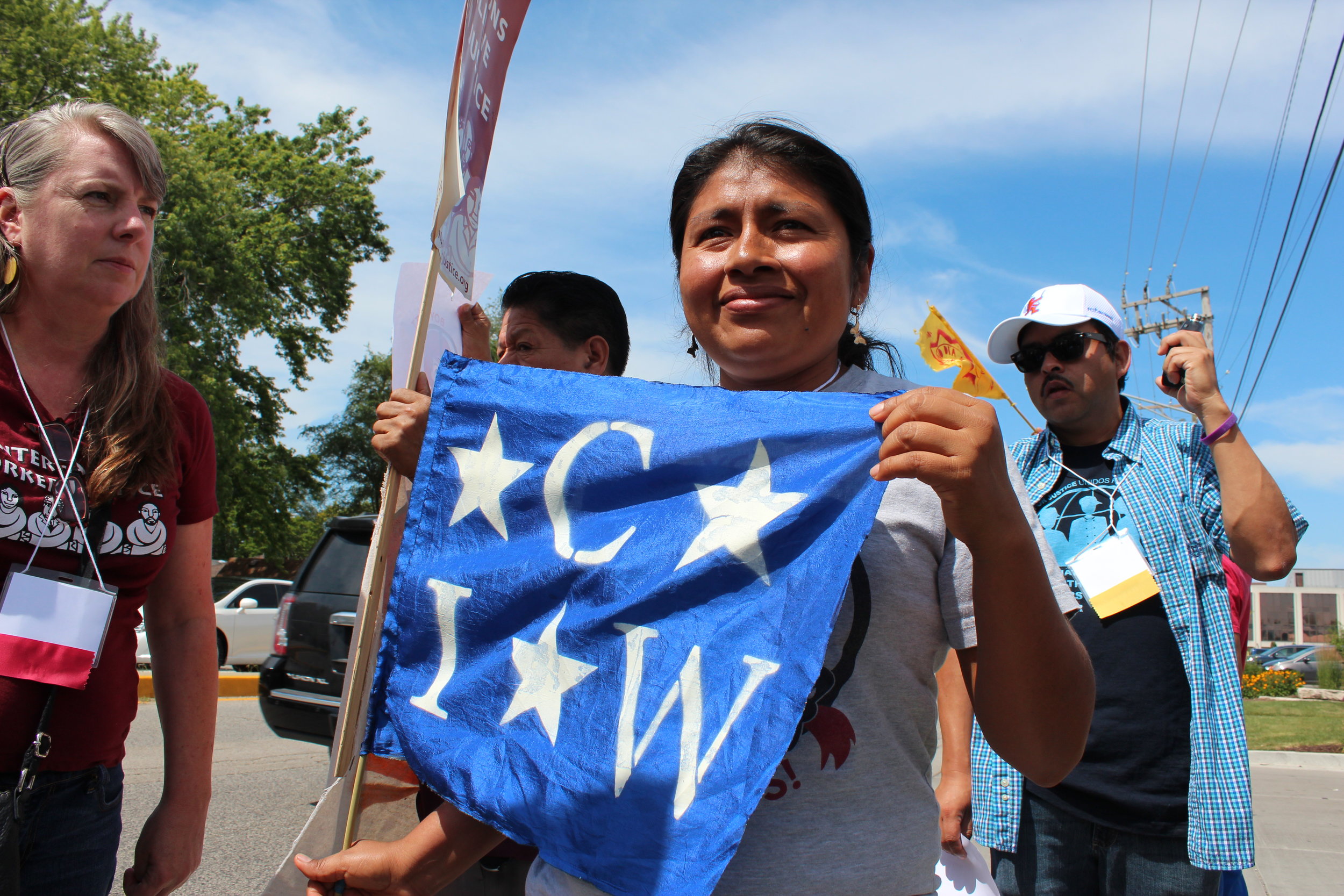
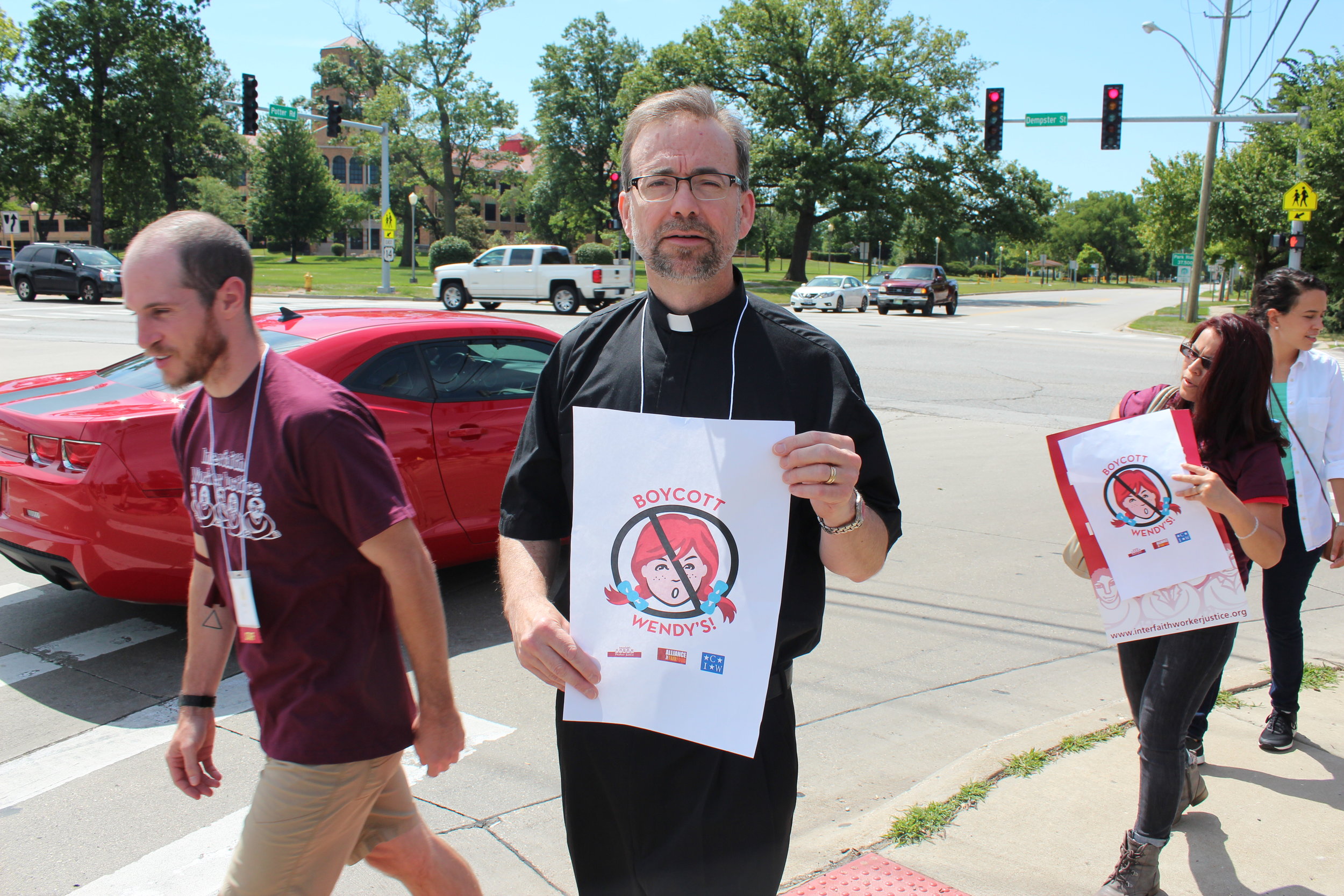




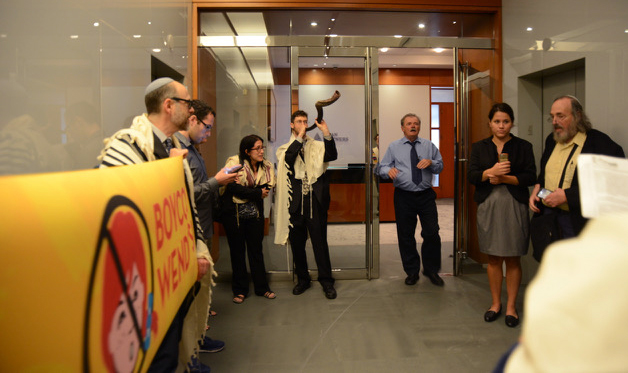
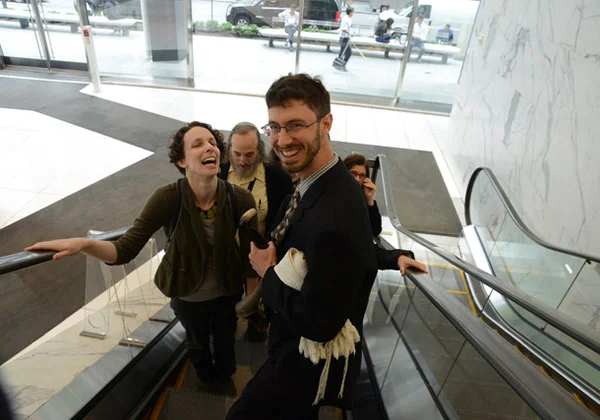
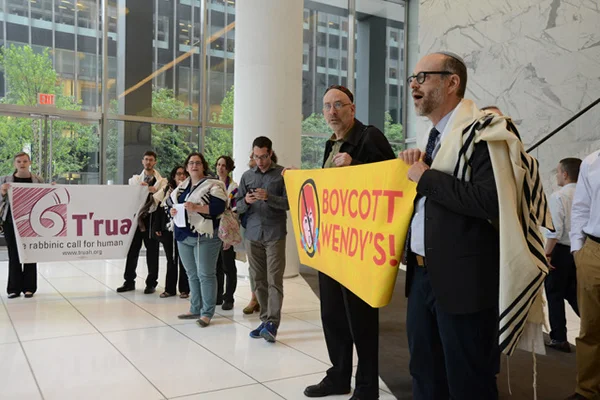






![Henry Anton Peller: “Are we ready to quit? [NO!] Are we tired yet? [NO!] Are we fired up? [YES!] Are we ready to win? [YES!] Good morning, my name is Henry, and that is the message I have to bring to Wendy’s today; t…](https://images.squarespace-cdn.com/content/v1/54481a36e4b005db391f3e20/1495731785775-TK88OWZWK85JLJVHBRBE/image-asset.jpeg)


